

Current information about your visit
As of 3 April 2022, all Corona rules in Bavaria, and thus also in Munich, were abolished with a few exceptions. You can find out what you should keep in mind here:
Corona rules in Munich - what you have to keep in mind:
Contact restrictions and mask requirement.
There are no more contact restrictions .
In public transport , the obligation to wear a mask will be waived as of 10 December 2022 , but in areas where people are particularly vulnerable , such as in old people's and nursing homes, hospitals and doctors' surgeries, a mask must continue to be worn.
On 16 November 2022, the obligation to isolate people infected with Corona was lifted in Bavaria and thus also in Munich. However, people infected with Corona are required to wear a mask and are not allowed to enter medical and nursing facilities.
Testing options in Munich
To find out where you can get a coronavirus test, go to: www.testen-muenchen.de .
Gastronomy and hotel industry
There are no longer any restrictions on overnight stays in hotels and holiday flats and on campsites .
The indoor and outdoor areas of Munich's gastronomy and beer gardens are once again open to all guests , even without vaccination and proof of testing. The same applies to visiting bars , clubs and discos .
Tip: Fancy a Christmas market and winter fun? Here are ten ideas for the winter .
Culture and recreational facilities
All cultural and recreational facilities can be visited again without proof of vaccination, convalescent status or Coronatest.
Folk festivals
Folk festivals are allowed to take place again .
Public transport
In public transport, all persons will again be transported regardless of their vaccination status. The obligation to wear a mask also does not apply.
Tip: Fancy some art? Here you will find the exhibition overview for 2022/23
Services and retail
Wearing an FFP2 mask in retail is no longer mandatory .
There are no longer any restrictions on visits to the hairdresser or the use of body-related services .
All guests are again admitted to city and guest tours regardless of vaccination or convalescent status or Coronatest.
Tip: Many city tours in Munich take place outside in the fresh air.
Trade fairs, congresses and conferences
For visitors to trade fairs , congresses and conferences , there are no longer any Corona requirements .
The previous hygiene and prevention guidelines should continue to be followed: Please continue to keep a safe distance of at least one and a half metres from other people. You should also make sure to follow the cough and sneeze etiquette and wash your hands several times a day.
Further information:
The Tourist Information office in the Town Hall on Marienplatz and at Hauptbahnhof are open for you. Please wear an FFP2 or medical mask when entering the Tourist Information. The guest service can also be reached by phone from Monday to Friday 9 am to 5 pm at +49 89233 96500.
Further up-to-date information on the coronavirus in relation to your trip to Munich can also be found at muenchen.de.
For acute questions regarding the coronavirus during your stay in Munich, please contact the Coronavirus Hotline of the City of Munich: 089 233 96333.
Further information on entry for guests coming to Munich from abroad can be found here .
Photo: Thomas Klinger
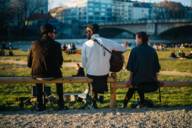
Local Love Munich
Munich's districts are diverse, contrasting and worth exploring. Immerse yourself!
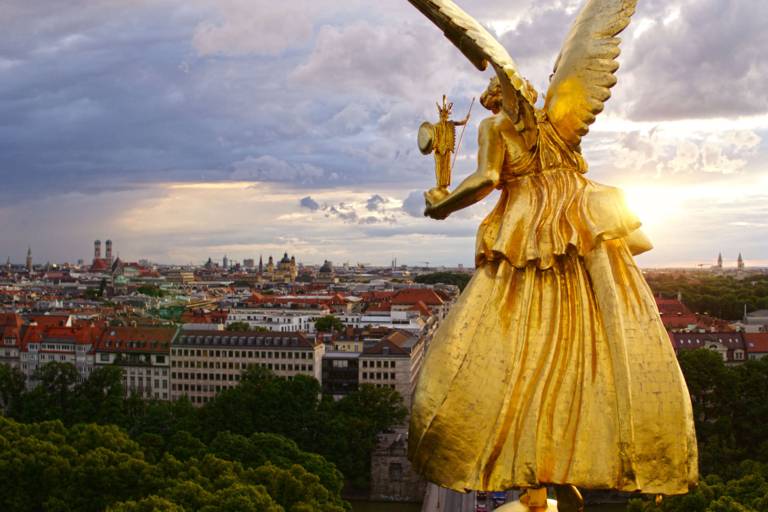
Attractions
The most important sights in munich at a glance.
Places in Munich that you should definitely visit at least once!

Urban & Districts
Every district a world of its own.
Schwabing bohemia, colourful diversity in the Glockenbach, village idylls in Haidhausen: an overview of Munich's districts.

Munich Guides
The best tips for your stay.
Relaxation, culture, gastronomy: our suggestions for an unforgettable visit to Munich.
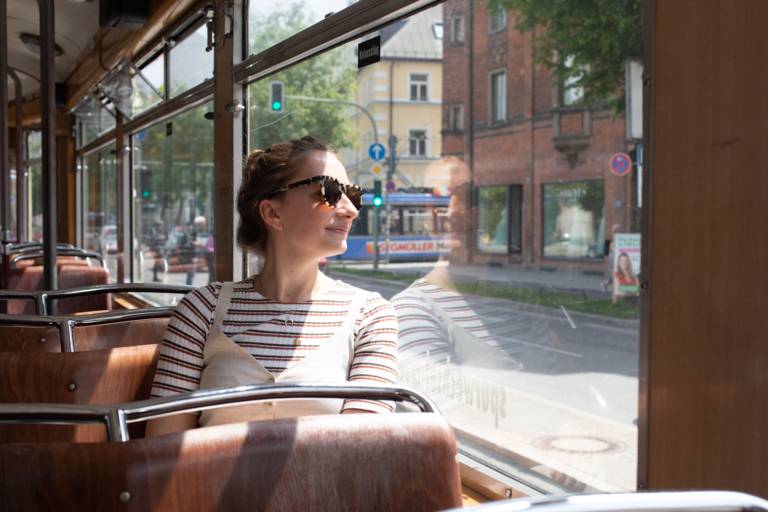
Holiday in the own city
Our author has been a travel blogger. Now she is discovering her own city.

Eat & Drink
Greetings from the munich kitchen.
Munich is a city full of tradition - of course also from a gastronomic point of view. An overview.
Munich is full of tradition - of course also from a gastronomic point of view. A tour through the kitchens of the city.

Shopping & Design
Munich is a true paradise for shopping.
A successful city trip should include an extensive shopping spree.
A successful city trip includes an extensive shopping spree: Munich offers almost heavenly conditions!

Arts & Culture
Munich's museums.
Munich's most important museums, galleries and collections at a glance.
Munich is pure cultural pleasure! We present the most important Munich museums, galleries and collections at a glance.
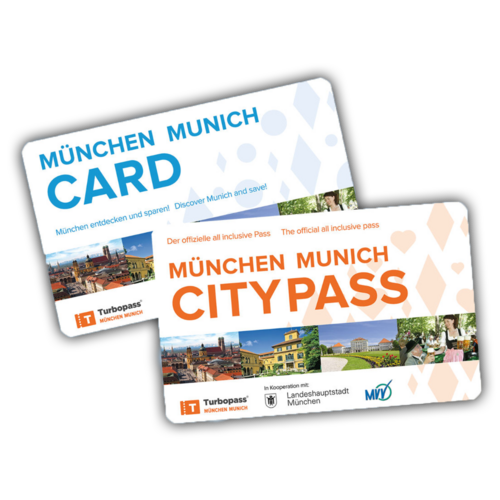
Munich Card & City Pass
Discover Munich in a relaxed and uncomplicated way: discounts for the diverse range of art, culture and leisure activities with our guest cards.
Free Public transport
Reduced or included!
Public transport is included
Many discounts with the Card, many things for free with the Pass.
Online or at the tourist information offices

Frauenkirche: Visit of the South Tower
Book a visit to the observation deck of Munich's Frauenkirche and enjoy a 360-degree panoramic view of the city.

Viktualienmarkt Tasting Tour
Discover the most delicious delicacies of the city and learn all kinds of interesting facts about Munich's most famous food market.
Discover the most delicious delicacies of the city and learn all kinds of interesting historical facts about Munich's most famous food market.

Justizpalast Tour
During the guided tour of the present-day seat of the Bavarian State Ministry of Justice, you will learn everything about the history and significance of the neo-baroque court and administrative building.

Romantic Road: Rothenburg and Harburg
Hop on and be whisked away by one of the world's most beautiful stretches of street: the Romantic Road to Rothenburg and Harburg.

New Town Hall Tour
Explore the Neue Rathaus on Marienplatz with an official City of Munich tour guide. A visit of the famous law library is also included!
Explore the Neue Rathaus on Marienplatz with an official tour guide. A visit of the famous law library is also included!
Magistrates, Monachia and magnificent celebrations: explore the Neue Rathaus on Marienplatz with an official City of Munich tour guide. A visit of the famous law library is also included!

Dream castles Neuschwanstein & Linderhof
Immerse yourself in the world of the fairytale king!

Visit of the Law Library: Juristische Bibliothek
Impressive architecture and unique ambience: discover the Law Library in the New Town Hall.
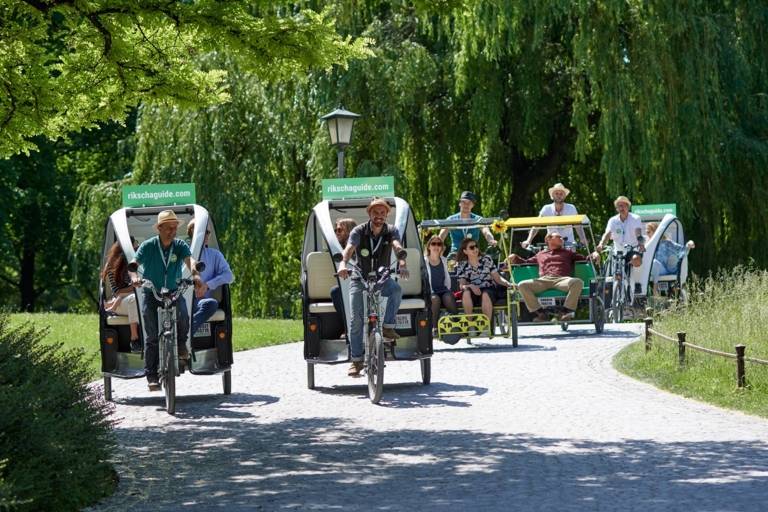
Pedicab tour through the old town and nature
Enjoy this special tour and pedicap ride past all the famous sights of Munich's old town and into the Englischer Garten.

Hofbräuhaus Tour
Discover the most famous beer hall in the world with an official guide of the city of Munich and enjoy a fresh Mass of beer afterward!

City trip incl. Munich Card and Tower Ascent
We look forward to seeing you again in Munich. Our tip: the exclusive travel package with Munich Card and Tower Ascent.
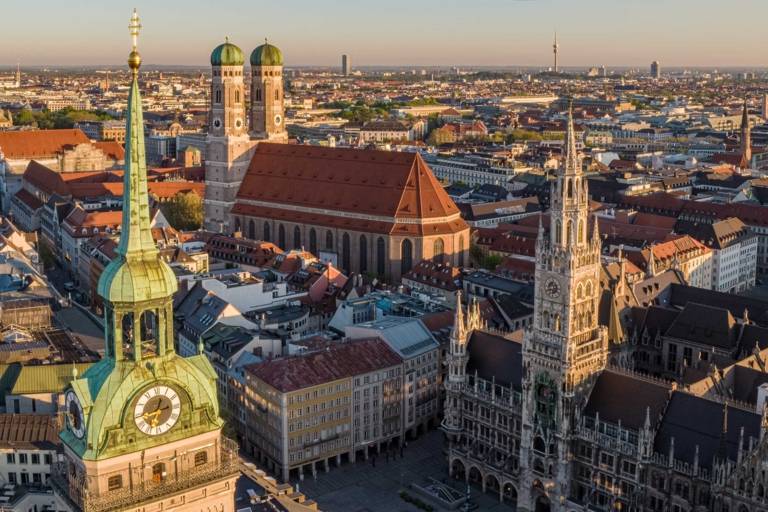
Old Town Tour
The city walk for everyone who wants to become acquainted with the most beautiful parts of Munich's city centre.

Spaten Brewery Tour
Experience a brewery tour at Spaten with a look behind the scenes, interesting facts about the company history and beer tasting in the brewery tower.

Hop-On Hop-Off Grand Circle 24h
The hop-on hop-off Grand Circle tour of Gray Line will let you collect unforgettable impressions of Munich.

Buy now vouchers for your visit in Munich. The ideal gift! Guided tours, guest cards and more...

Private guided tour through Munich's Old Town
Exclusive and safe: Discover the most beautiful sights and corners of Munich's city centre with your official personal guide.

Berchtesgaden area and Eagle's Nest
The day trip takes you along the Alpine Road to Berchtesgaden area with its dreamlike scenery.

Salzburg and the Lake District
Visit the birthplace of Wolfgang Amadeus Mozart and relax on the journey to beautiful Lake Wolfgang.
Visit the birthplace of composer extraordinaire Wolfgang Amadeus Mozart, stroll through the Baroque old town and then relax on the journey to beautiful Lake Wolfgang.

Oktoberfest Shop
Bring a piece of Oktoberfest home: Purchase official souvenirs such as the Wiesn poster or the Oktoberfest beer stein in the official Oktoberfest shop.

Dream castles Neuschwanstein & Linderhof VIP
As VIP in the footsteps of King Ludwig II. On this day tour in the luxurious long-distance coach of Gray Line Sightseeing you can visit both dream castles of the fairytale king.
A day tour in the luxurious long-distance coach of Gray Line Sightseeing.

Rental bike 1 day
With a rental bike, you can experience Munich at your own personal pace. Discover hidden alleys and charming districts off the beaten track.

Discovery trip incl. City Pass
2 nights in your selected hotel and - thanks to the City Pass - free admission to 45 museums, sights and attractions: our travel package for explorers.

Guided Tours

Travel Packages

Accomodation
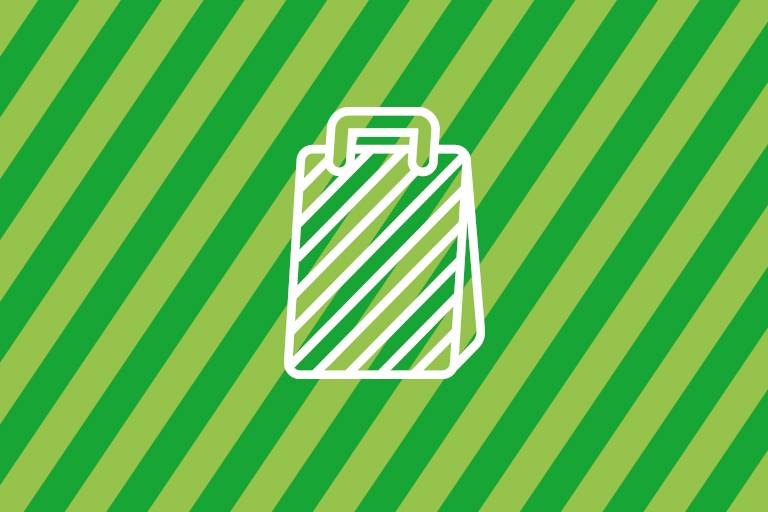
Give the gift of a special Munich voucher: we also offer vouchers for all our guided tours. Here you can book unique Munich experiences directly online, print them out and give them as a gift voucher to friends or family.

- Book excursions
- Book the Munich-Card
- Book guided tours
Find your hotel now
Travel date
- Go to navigation
- Go to main content
- Go to search
- Go to footer
Main content
Entry requirements.
Entry regulations for your destination
Find the most important information about entering your destination country: regulations for Corona test certificates and local test centres, as well as local quarantine regulations. Simply enter your departure and destination airport here.
Related topics
Plan your trip.
Be inspired by our latest destinations and offers. Find out also which additional services are available for your flight.
Current flight status
Enter your flight number to get the latest information about your flight.
Guidelines for travelling safely
See our numerous protective and hygiene measures at a glance.
Covid-19: No more state corona rules in effect
Corona: All rules suspended in Munich and Bavaria
As of April 8, 2023, there are no more state-mandated Corona protections.

More actions
- Share on Facebook
- Share via WhatsApp
Transport mask requirement lifted: No more mandatory masks on buses and trains
The nationwide mandatory mask requirement for long-distance public transportation by bus and train has been lifted as of February 2, 2023. Masks are also no longer mandatory for local public transport.
Mask requirement lifted in nursing homes, hospitals and doctors' offices
Since April 8, 2023, the FFP2 mask requirement for visitors to medical facilities has been lifted. Theoretically, however, the facilities can make use of their domiciliary rights and continue to require the wearing of a mask.
Voluntary protection concepts in facilities still possible
There are no longer any Bavaria-wide access rules. However, all organizers and facilities can continue to implement voluntary protection concepts according to house rules. Please inform yourself in advance on the Internet or on site which rules currently apply!
Schools and daycare centers: Pay attention to symptoms of disease
Attendance is possible without restrictions. Parents are asked to have their children tested if they show symptoms of illness.
- Further information can be found in the FAQ of the Bavarian Ministry of Education and Cultural Affairs (in German)
Corona isolation requirement lifted
The isolation requirement has been lifted since November 16, 2022.
People who have tested positive are advised to avoid unnecessary contact with other people. As far as possible, please pursue your professional activity from home and refrain from visiting public events and restaurants.
Positive test results are sent directly to the health department by the laboratories or test centers. However, you will be asked to provide the health department with additional information about yourself (> muenchen.de/ipdaten ).
You can also contact the health department by sending an e-mail to [email protected] .
Anyone who still needs a confirmation of the isolation period retrospectively (for the period before the end of isolation requirement in Bavaria on November 16, 2022) can fill out this online form to request confirmation of isolation.
Travel: Testing and detection requirements, virus variant area
There is currently no obligation to test or provide evidence for all persons entering Germany . After a stay in a virus variant area, however, there is still an obligation to provide evidence of a current PCR test. Information on which countries or regions are classified according to this category is available on the RKI website on a daily basis.
Information for travelers from the Federal Ministry of Health

Coronavirus: Information from Munich
Official information and rules in English language about the Corona virus (SARS-CoV-2)
- KAYAK for Business NEW
Germany Travel Restrictions
Traveler's COVID-19 vaccination status
Traveling from the United States to Germany
Open for vaccinated visitors
COVID-19 testing
Not required
Not required for vaccinated visitors
Restaurants
Not required in public spaces.
Germany entry details and exceptions
Ready to travel, find flights to germany, find stays in germany, explore more countries on travel restrictions map, destinations you can travel to now, dominican republic, netherlands, philippines, puerto rico, switzerland, united arab emirates, united kingdom, know when to go.
Sign up for email alerts as countries begin to open - choose the destinations you're interested in so you're in the know.
Can I travel to Germany from the United States?
Most visitors from the United States, regardless of vaccination status, can enter Germany.
Can I travel to Germany if I am vaccinated?
Fully vaccinated visitors from the United States can enter Germany without restrictions.
Can I travel to Germany without being vaccinated?
Unvaccinated visitors from the United States can enter Germany without restrictions.
Do I need a COVID test to enter Germany?
Visitors from the United States are not required to present a negative COVID-19 PCR test or antigen result upon entering Germany.
Can I travel to Germany without quarantine?
Travelers from the United States are not required to quarantine.
Do I need to wear a mask in Germany?
Mask usage in Germany is not required in public spaces.
Are the restaurants and bars open in Germany?
Restaurants in Germany are open. Bars in Germany are .
What are you looking for?
Covid-19 information.
Coronavirus, © Colourbox
COVID-19: Travel restrictions due to the corona pandemic and quarantine regulations for entry to Germany.
Persons who are fully vaccinated against the coronavirus SARS-CoV-2 with vaccines approved by the European Medicines Agency (EMA) (or equivalents of these vaccines used in third countries) can enter Germany. This includes persons who wish to enter Germany for the purpose of visits or tourism. Fully vaccinated persons as defined above can apply for visas at the competent mission abroad if required.
However, this does not apply to entry to Germany from countries that are classified as areas of variant of concern. Transportation to Germany from these areas continues to be prohibited.
Only persons who are fully vaccinated with one or different vaccines approved by the European Medicines Agency (EMA) (list of approved vaccines ) or with equivalents of these vaccines used in third countries (list ) can enter Germany. The plan is to extend this to other vaccines with a comparable level of protection as soon as the necessary tests have been completed.
Proof of vaccination
To enter Germany, all travellers must present proof of vaccination that meets the requirements listed under 1., 2. and 3. below in full.
It must be a digital EU COVID certificate or comparable proof of vaccination in digital or physical (paper) form in German, English, French, Italian or Spanish. Photographs of physical proof cannot be accepted as digital proof. Proof in digital form should have been issued digitally by the authorised issuer and transmitted digitally to the entitled holder.
the personal data of the vaccinated person (at least their family name, first name and date of birth or the number of a valid passport or other official photo ID, which is to be presented upon inspection),
date of vaccination, number of vaccinations,
name of vaccine,
name of disease vaccinated against, and
identifiers that indicate the person or institution responsible for administering the vaccination or issuing the certificate, for example an official symbol or the name of the issuer.
Furthermore, the vaccination needs to meet certain requirements as provided for in Section 22 (a) 1 of the Protection against Infection Act for the individual to be considered fully protected.
To be considered fully vaccinated with approved vaccines, the requirements are
a) up until 30 September 2022: two vaccination doses;
b) up until 30 September 2022: one vaccination dose if in addition the individual can provide proof of:
- an antibody test with proven infection with coronavirus prior to the vaccination, followed by administration of vaccination; or
- a positive test by means of a nucleic acid test (for example, PCR) prior to the vaccination dose ; or
- a positive test by means of a nucleic acid test (for example, PCR) taken at least 28 days ago and after first vaccination dose was administered;
c) from 1 October 2022: three vaccination doses ; the last vaccination dose must be administered at least three months after the second one;
d) from 1 October 2022: two vaccination doses if proof can be provided in addition of:
- an antibody test with proven infection with coronavirus prior to the first vaccination dose, followed by administration of two vaccinations; or
- a positive test by means of a nucleic acid test (for example, PCR) prior to the second vaccination ; or
- a positive test by means of a nucleic acid test (for example, PCR) taken at least 28 days ago and after the second vaccination was administered.
Before you travel, please check your vaccination certificate meets the above requirements.
Children under the age of 12 who are not yet vaccinated can enter the country with proof of a negative test result (PCR test or antigen test) when accompanied by at least one fully vaccinated parent. Children under the age of six do not require proof of a negative test result.
Further information is available here .
The latest information on COVID-19 and travel restrictions to the U.S. and Germany can also be found on the Embassy Washington page: Germany.info .
- Top of page
Update April 12, 2024
Information for u.s. citizens in the middle east.
- Travel Advisories |
- Contact Us |
- MyTravelGov |
Find U.S. Embassies & Consulates
Travel.state.gov, congressional liaison, special issuance agency, u.s. passports, international travel, intercountry adoption, international parental child abduction, records and authentications, popular links, travel advisories, mytravelgov, stay connected, legal resources, legal information, info for u.s. law enforcement, replace or certify documents.
Share this page:
Germany Travel Advisory
Travel advisory july 26, 2023, germany - level 2: exercise increased caution.
Reissued with obsolete COVID-19 page links removed.
Exercise increased caution in Germany due to terrorism .
Country Summary: Terrorist groups continue plotting possible attacks in Germany. Terrorists may attack with little or no warning, targeting tourist locations, transportation hubs, markets/shopping malls, local government facilities, hotels, clubs, restaurants, places of worship, parks, major sporting and cultural events, educational institutions, airports, and other public areas.
Read the country information page for additional information on travel to Germany.
If you decide to travel to Germany:
- Be aware of your surroundings when traveling to tourist locations and crowded public venues.
- Follow the instructions of local authorities.
- Monitor local media for breaking events and adjust your plans based on new information.
- Enroll in the Smart Traveler Enrollment Program ( STEP ) to receive Alerts and make it easier to locate you in an emergency.
- Follow the Department of State on Facebook and Twitter .
- Review the Country Security Report for Germany.
- Visit the CDC page for the latest Travel Health Information related to your travel.
- Prepare a contingency plan for emergency situations. Review the Traveler’s Checklist .
Travel Advisory Levels
Assistance for u.s. citizens, germany map, search for travel advisories, external link.
You are about to leave travel.state.gov for an external website that is not maintained by the U.S. Department of State.
Links to external websites are provided as a convenience and should not be construed as an endorsement by the U.S. Department of State of the views or products contained therein. If you wish to remain on travel.state.gov, click the "cancel" message.
You are about to visit:
Your browser does not support JavaScript or your JavaScript is disabled in your browser.
- Area navigation
- Additional information
- Travel tips
- Passengers & Visitors
Get prepared for your journey
Preparations at home, on your way to the airport, at the airport, 5 tips for a smooth departure.
Especially during the vacation season, it can get crowded at Munich Airport. In order to make the start of your trip as easy as possible, we put together a few tips that help you shorten the waiting time and avoid unpleasant surprises.
- Find out in advance about immigration regulations
- Use online check-in and automated services
- Use the parking online booking platform in advance
- Arrive on time
Observe current regulations
- When flying abroad, the entry regulations of the respective destination country must be observed. Please inform yourself in good time before departure which proofs are required for your destination country
Check the validity of the identity cards or passports for all fellow travelers - including your children. Each child traveling with you requires its own valid travel document . If only one parent is traveling with the child or if the child is traveling with a non-custodial person, a declaration of consent from both parents is required. More info: Flying with children
Inquire about the conditions of transport for animals - the requirements for re-entry as well as the requirements for entry of animals in the country of travel in good time before starting your trip.
- Check with your airline about current conditions of carriage (e.g. hygiene or baggage regulations)
- One day before departure, check the website of your airline or Munich Airport's flight schedule to see whether your flight will actually take place at the specified time.
- Pack as much as possible in your suitcase or travel bag
- Only items that you need with you at all times should go in your carry-on luggage
- Keep important documents and papers handy at all times
- Pack only permitted items and goods in your luggage. This will help you avoid unpleasant situations at the security checkpoint.
Unsure if you are allowed to pack a certain item in your hand luggage or suitcase?
This is allowed in the luggage
Do the check-in in advance
Many airlines offer online check-in . This allows you to create your boarding passes yourself and save them on your smartphone. At the airport, there are baggage machines where you can simply drop off your bags. Here, the waiting times are often shorter than at the classic check-in counters.
Some airlines also offer an evening-before check-in at the airport. This allows you to drop off your luggage the evening before departure and start your journey the next day with hand luggage only.
For information on whether advance check-in is possible on your flight, please contact your airline .
Your check-in options
Leave on time
- Plan enough time for your arrival, baggage check-in and the control procedures at the airport.
- During the vacation season, there can always be very high passenger volumes and thus longer waiting times at check-in or at control points.
- Both on the roads around the airport and on the S-Bahn, there may be traffic jams and traffic obstructions due to construction work.
- On the airlines ' pages you will find information about baggage regulations and also about the opening hours of the check-in desks, so that they can arrive at the airport on time , but also not unnecessarily early .
Getting to the airport
Book a parking space online
There are numerous parking options available to you at the airport. Whether very close to the terminal or particularly inexpensive - the choice is yours:
- From the parking garages close to the terminal , you can reach your departure gate in the terminal in just a few minutes and save time.
- You can park in the economy parking zones at the best price/performance ratio. The free transfer by bus or S-Bahn takes you directly to the terminals.
Reserve your parking space at the airport online in advance . This way you can secure a parking space at your desired location and save time.
Book your parking space online
Take advantage of special offers
Book now and save, find your way at the airport.
Important to know: In which terminal does your airline depart and where is the check-in area? All information: overview of airlines at Munich Airport
Departures in Terminal 1 take place via the gates of the modules A to E . The check-in areas usually correspond to the module designation. Check-In Z (or T1Z ) is located near the S-Bahn entrance opposite the main information desk.
- Your ticket will show whether you will be boarding your flight from Terminal 2 or the Satellite Terminal: Gates G and H - Terminal 2, Gates K and L - Satellite Terminal
- free shuttle service: every two to four minutes an automated personal transportation system departs between Terminal 2 and the Satellite Terminal. You will need less than a minute to travel from Terminal 2 to the Satellite Terminal and back. Passengers departing from the Satellite Terminal can enjoy the modern range of dining and shopping options available there.
The airport map provides more orientation in the terminals.
Your stay at Munich Airport
Use checkpoints properly
New CT scanners at the hand baggage controls
Benefit from seven new CT scanners so far. In the coming months, further security checkpoints in Terminals 1 and 2 will be modernized and technically upgraded to the highest standard.
Current notice for passengers in Terminal 2: During the renovation phase of the screening lanes passengers will be rerouted, and the number of screening lanes will be reduced at times. As a result, waiting times at the security checkpoint may change at short notice. After the conversion, passengers will benefit from faster, more effective processes and noticeably improved comfort .
More information: Security screening an passport control
Before your departure, you will pass through several checkpoints. Please note the following information :
Automated passport control: If you are traveling to a country outside the Schengen zone, you have the possibility to use the automated passport control (e.g. EasyPASS) and thus save time. Our tip: As an EU citizen, make sure to use the lane for EU citizens at passport control. By doing so, you can actively reduce your waiting time. How EasyPASS works Traveling with kids: Please note that automatic passport control is only available for passengers over the age of 18. With children and teenagers, please use the classic control counters. Each child traveling with you needs its own valid travel document. If only one parent is traveling with the child or if the child is traveling with a non-custodial person, a declaration of consent from both parents is required. More info: Flying with children
Your way through passport control
5 tips for security control:
- Use all checkpoints
- Enter the checkpoint only after being asked to do so.
- Bring only one piece of hand luggage to the checkpoint
- Check in all other baggage
- Put your baggage tubs back on your own
Your way through security control
Automated boarding pass control in Terminal 2:
Download Passngr app
The Passngr app is your personal travel companion for your departure from Munich.
- Save your flight in the app and receive all updates on your flight status . So you have every change to your flight at any time in view.
- All information about your flight , such as eve check-in, current waiting times and entry requirements in your destination country are available with just a few clicks.
- In addition, the Passngr app shows the entire range of shops, restaurants and services at the airport, as well as current promotions and discounts. Simply save your favorites for your stay at Munich Airport.
Also interesting
Digital maps, flying with children, accessible travel, sustainable air travel.
Climate protection concerns all of us. You can make a difference in protecting the environment
Share page & visit network

- General Information
Plan your trip
Visa & entry requirements for munich.
Do you know which documents you'll need to travel to Germany ? Plan ahead and find out whether you need your passport, visa, national ID or all of the above!
Passport or National ID
Munich is located in Germany, in the European Union, making it part of the Schengen Area. This means that EU nationals and citizens of 62 other countries only need their passport (with at least four months validity from the planned departure date) or national identity card to enter as tourists for a period of up to 90 days.
EU, EEA and Swiss Citizens
As citizens of the European Union and European Economic Area, you will not need a visa to enter the country. A valid passport or national identity card is required.
EU member countries Germany, Austria, Belgium, Bulgaria, Cyprus, Croatia, Denmark, Slovakia, Slovenia, Spain, Estonia, Finland, France, Greece, Hungary, Ireland, Italy, Latvia, Lithuania, Luxembourg, Malta, Netherlands, Poland, Portugal, United Kingdom*, Czech Republic, Romania and Sweden.
EEA countries Iceland, Liechtenstein and Norway.
*Please check the UK Government's Foreign Travel Advice website for up to date advice regarding travel, entry requirements and Brexit.
US Citizens
American citizens traveling to Germany for less than 90 days do not need a visa. However, they will need a valid passport for at least six months beyond their stay. Immigration officers may also ask citizens to show enough funds for their stay and a return airline ticket.
Australian Citizens
Australian citizens visiting Germany or any other European country in the Schengen Convention (all EU states minus Britain and Ireland, plus Switzerland) for less than 90 days do not require a visa . Passports need to have at least six-month validity from the planned date of return.
In addition to the countries listed above , citizens of the following countries have the right to enter Germany without a visa as tourists for a period of up to 90 days:
Albania, Andorra, Antigua and Barbuda, Argentina, Bahamas, Barbados, Bosnia and Herzegovina, Brazil, Brunei, Canada, Chile, Colombia, Costa Rica, Dominica, El Salvador, Georgia, Grenada, Guatemala, Honduras, Hong Kong, Israel, Japan, Kiribati, Macao, Macedonia, Malaysia, Marshall Islands, Mauritius, Mexico, Micronesia, Moldova, Monaco, Montenegro, New Zealand, Nicaragua, Palau, Panama, Paraguay, Peru, Saint Kitts and Nevis, Saint Lucia, Saint Vincent, Samoa, San Marino, Serbia, Seychelles, Singapore, Solomon Islands, South Korea, Taiwan, Timor Leste, Tonga, Trinidad and Tobago, Tuvalu, Ukraine, United Arab Emirates, Uruguay, Vanuatu, Vatican City, Venezuela.
If you are not a citizen of an EU country or one of the nations listed above, we recommend visiting your country's German Embassy or checking the website of the German Federal Foreign Office for more information.
You may also be interested in
Learn what currency to buy, whether you need a visa, what time you can visit the shops and museums, what to pack for the weather, and answers to many other questions you may have about your trip to Munich.
The official language of Munich is German. This article is full of helpful advice and basic phrases you can use to make your trip to Germany easier.

Travel Guide
- Things to Do
- Best Hotels
- Things to See
- Best Restaurants
- Best Nightlife
- Escorted & Package Tours
- Entry Requirements & Customs
- Getting Around
- Visitor Information
- Tips on Accommodations
- Special-Interest Vacations
- Calendar of Events
- Sustainable Travel & Ecotourism
- Getting There
- Health & Safety
- Orientation
- Neighborhoods in Brief
- Tips for Gay and Lesbian Travelers
- Tips for Senior Travelers
- Tips for Travelers with Disabilities
- Staying Connected
- Organized Tours
- Walking Tours
- Active Pursuits
- Spectator Sports
- Suggested Itineraries
Entry Requirements & Customs in Munich
Every U.S., Canadian, British, and Australian traveler entering Germany must hold a valid passport. You won't need a visa unless you're staying longer than 3 months. Once you've entered Germany, you won't need to show your passport again at the borders of Belgium, France, Italy, Luxembourg, the Netherlands, Portugal, or Spain. Safeguard your passport in an inconspicuous, inaccessible place like a money belt. If you lose your passport, visit the nearest consulate of your home country as soon as possible for a replacement. You should always carry a photocopy of your passport (stored separately) to expedite replacement.
For an up-to-date, country-by-country listing of passport requirements around the world, go to the International Travel Web page of the U.S. State Department at http://travel.state.gov (click on "International Travel for U.S. Citizens").
It's always wise to have plenty of documentation when traveling in today's world with children. For changing details on entry requirements for children traveling abroad, go to the U.S. State Department website at http://travel.state.gov.
To prevent international child abduction, European Union governments have initiated procedures at entry and exit points. These often (but not always) include requiring documentary evidence of relationship and permission for the child's travel from the parent or legal guardian not present. Having such documentation on hand, even if not required, facilitates entries and exits. All children must have their own passport. To obtain a passport, the child must be present -- that is, in person -- at the center issuing the passport. Both parents must be present as well. If not, then a notarized statement from the parents is required. Any questions parents or guardians might have can be answered by calling the National Passport Center at tel. 877/487-2778; http://travel.state.gov; Monday to Friday 8am to 8pm Eastern time.
Allow plenty of time before your trip to apply for a passport; processing normally takes 3 weeks but can take longer during busy periods (especially spring). If you need a passport in a hurry, you'll pay a higher processing fee.
For Residents of Australia: You can pick up an application from your local post office or any branch of Passports Australia, but you must schedule an interview at the passport office to present your application materials. Call the Australian Passport Information Service at tel. 131-232, or visit the government website at www.passports.gov.au.
For Residents of Canada: Passport applications are available at travel agencies throughout Canada or from the central Passport Office, Dept. of Foreign Affairs and International Trade, Ottawa, QC K1A 0G3 (tel. 800/567-6868; www.ppt.gc.ca).
For Residents of Ireland: You can apply for a passport at the Passport Office, Setanta Centre, Molesworth Street, Dublin 2 (tel. 01/671-1633; www.dfa.ie). Ireland infants (up to age 3) are issued a 3-year passport. Children aged 3 to 17 are issued a 5-year passport. Persons aged 18 and over, including those over 65, are issued with a 10-year passport. You can also apply at 1A South Mall, Cork (tel. 021/494-4700 ) or at most main post offices.
For Residents of New Zealand: You can pick up a passport application at any New Zealand Passports Office or download it from the website. Contact the Passports Office at tel. 0800/225-050 in New Zealand or 04/474-8100, or log on to www.passports.govt.nz.
For Residents of the United Kingdom: To pick up an application for a standard 10-year passport (5-year passport for children 15 and under), visit your nearest passport office, major post office, or travel agency or contact the United Kingdom Passport Service at tel. 0300/-222-000, or search its website at www.ukpa.gov.uk.
For Residents of the United States: Whether you're applying in person or by mail, you can download passport applications from the U.S. Department of State website at http://travel.state.gov . To find your regional passport office, either check the U.S. Department of State website or call the National Passport Information Center toll-free number (tel. 877/487-2778 ) for automated information.
What You Can Bring into Germany -- In general, items required for personal and professional use or consumption may be brought into Germany duty-free and without hassle. No duty is levied for a private car, provided that it is reported. You can also bring in gifts duty-free up to a total value of 175€.
The following items are permitted into Germany duty-free from non-E.U. (European Union) countries: 200 cigarettes; 1 liter of liquor above 44 proof, or 2 liters of liquor less than 44 proof, or 2 liters of wine; 50 grams of perfume and .25 liters of eau de cologne; 500 grams of coffee; and 100 grams of tea. Travelers bringing in tobacco or alcohol products must be 17 years or older, and those bringing coffee or tea must be 15 years or older. From E.U. countries the duty-free limits are higher. Duty-free allowances are authorized only when the items are carried in the traveler's personal baggage.
What you Can Take Home from Germany --
U.S. Residents -- Returning U.S. residents who have been away for at least 48 hours are allowed to bring back, once every 30 days, $800 worth of merchandise duty-free. You'll be charged a flat rate of 3% duty on the next $1,000 worth of purchases. Any dollar amount beyond that is dutiable at whatever rates apply. On mailed gifts, the duty-free limit is $200. Be sure to have your receipts or purchases handy to expedite the declaration process. Note: If you owe duty, you are required to pay on your arrival in the United States, by cash, personal check, government or traveler's check, or money order, and in some locations a Visa or MasterCard.
To avoid having to pay duty on foreign-made personal items you owned before you left on your trip, bring along a bill of sale, insurance policy, jeweler's appraisal, or receipts of purchase. Or you can register items that can be readily identified by a permanently affixed serial number or marking -- think laptop computers, cameras, and CD players -- with Customs before you leave. Take the items to the nearest Customs office or register them with Customs at the airport from which you're departing. You'll receive, at no cost, a Certificate of Registration, which allows duty-free entry for the life of the item.
With some exceptions, you cannot bring fresh fruit and vegetables into the United States. For specifics on what you can bring back and the corresponding fees, download the invaluable free pamphlet Know Before You Go online at www.cbp.gov . Or contact the U.S. Customs & Border Protection (CBP), 1300 Pennsylvania Ave., NW, Washington, DC 20229 (tel. 877/227-5511 ), and request the pamphlet.
Canadian Residents -- For a clear summary of Canadian rules, write for the booklet Be Aware and Declare, issued by the Canada Border Services (tel. 800/461-9999 in Canada, or 204/983-3500; www.cbsa-asfc.gc.ca). Canada allows its residents a C$750 exemption, and adults are allowed to bring back duty-free one carton of cigarettes, one can of tobacco, 40 imperial ounces of liquor, and 50 cigars. In addition, you're allowed to mail gifts to Canada valued at less than C$60 a day, provided they're unsolicited and don't contain alcohol or tobacco (write on the package "Unsolicited gift, under C$60 value"). Declare all valuables on the Y-38 form before departure from Canada, including serial numbers of valuables you already own, such as expensive foreign cameras. Note: The C$750 exemption can be used only once a year and only after an absence of 7 days.
U.K. Residents -- U.K. residents who are returning from a European Union country go through a separate Customs Exit (the "Blue Exit") especially for E.U. travelers. In essence, there is no limit on what you can bring back from an E.U. country, as long as the items are for personal use (this includes gifts) and you have already paid the necessary duty and tax. However, Customs law sets out guidance levels. If you bring in more than these levels, you may be asked to prove that the goods are for your own use. Guidance levels on goods bought in the E.U. for your own use are 3,200 cigarettes, 200 cigars, 400 cigarillos, 3 kilograms of smoking tobacco, 10 liters of spirits, 90 liters of wine, 20 liters of fortified wine (such as port or sherry), and 110 liters of beer.
For information, contact HM revenue Customs at tel. 0845/010-9000 (from outside the U.K., 02920/501-261), or visit www.hmrc.gov.uk.
Australian Residents -- The duty-free allowance in Australia is A$900. Residents can bring in 250 cigarettes or 250 grams of loose tobacco, and 2.25 liters of alcohol. If you're taking valuables you already own, such as foreign-made cameras, you should file form B263. A helpful brochure available from Australian consulates or Customs offices is Know Before You Go. For more information, call the Australian Customs Service at tel. 1300/363-263, or go to www.customs.gov.au.
New Zealand Residents -- The duty-free allowance for New Zealand is NZ$700. Residents 18 and over can bring in 200 cigarettes, 50 cigars, or 250 grams of tobacco (or a mixture of all three if their combined weight doesn't exceed 250g); plus 4.5 liters of wine and beer, or 1.125 liters of liquor. New Zealand currency does not carry import or export restrictions. Fill out a certificate of export, listing the valuables you are taking out of the country; that way, you can bring them back without paying duty. Most questions are answered in a free pamphlet available at New Zealand consulates and Customs offices: New Zealand Customs Guide for Travellers, Notice No. 4. For more information, contact New Zealand Customs Service, the Customhouse, 17-21 Whitmore St., Box 2218, Wellington (tel. 04/473-6099 or 0800/428-786; www.customs.govt.nz).
Medical Requirements
Unless you're arriving from an area known to be suffering from an epidemic (particularly cholera or yellow fever), inoculations or vaccinations are not required for entry into Germany.
Note : This information was accurate when it was published, but can change without notice. Please be sure to confirm all rates and details directly with the companies in question before planning your trip.

- All Regions
- Australia & South Pacific
- Caribbean & Atlantic
- Central & South America
- Middle East & Africa
- North America
- Washington, D.C.
- San Francisco
- New York City
- Los Angeles
- Arts & Culture
- Beach & Water Sports
- Local Experiences
- Food & Drink
- Outdoor & Adventure
- National Parks
- Winter Sports
- Travelers with Disabilities
- Family & Kids
- All Slideshows
- Hotel Deals
- Car Rentals
- Flight Alerts
- Credit Cards & Loyalty Points
- Cruise News
- Entry Requirements & Customs
- Car, Bus, Rail News
- Money & Fees
- Health, Insurance, Security
- Packing & Luggage
- -Arthur Frommer Online
- -Passportable
- Road Trip Guides
- Alaska Made Easy
- Great Vacation Ideas in the U.S.A.
- Best of the Caribbean
- Best of Mexico
- Cruise Inspiration
- Best Places to Go 2024
You are using an outdated browser. Upgrade your browser today or install Google Chrome Frame to better experience this site.
Germany Traveler View
Travel health notices, vaccines and medicines, non-vaccine-preventable diseases, stay healthy and safe.
- Packing List
After Your Trip
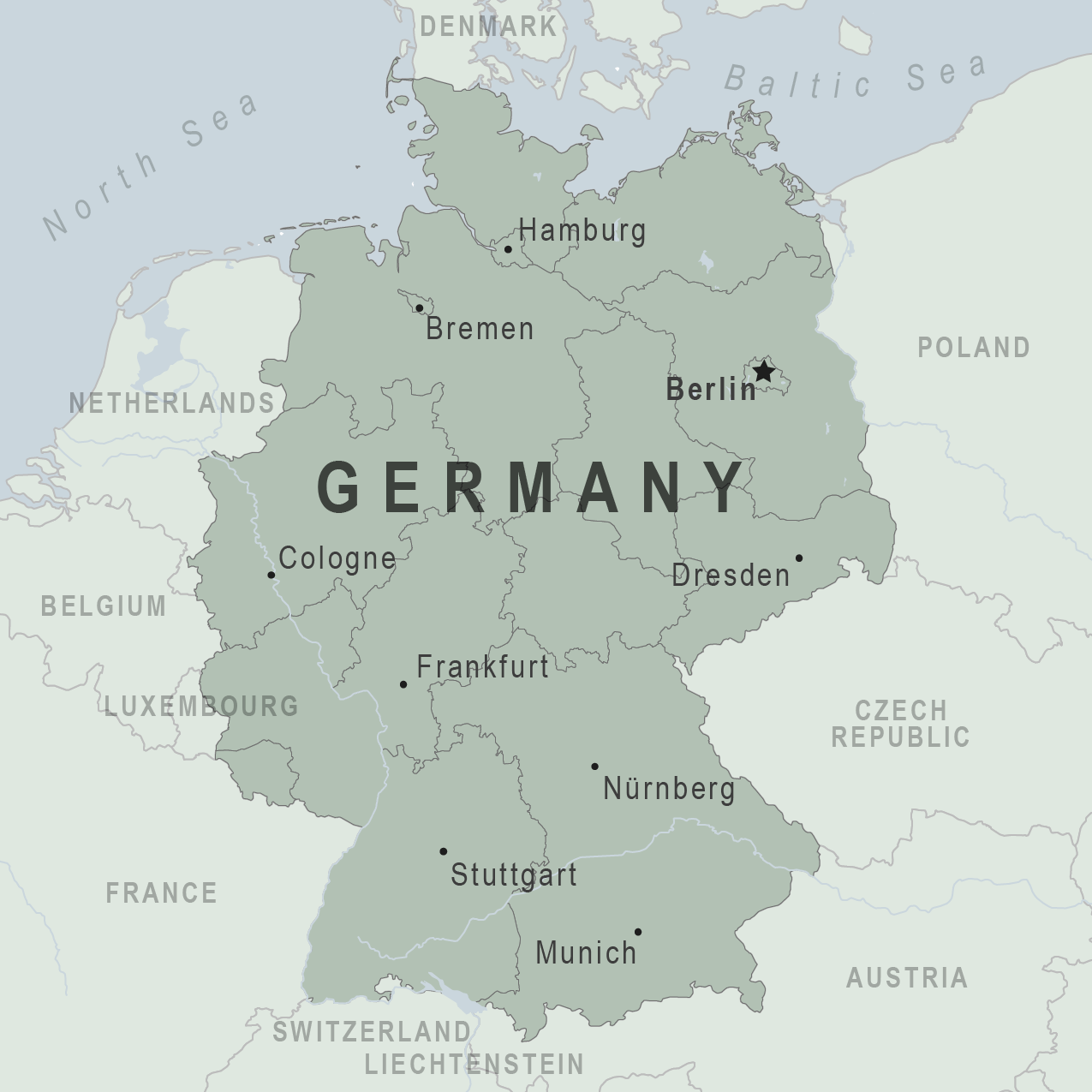
There are no notices currently in effect for Germany.
⇧ Top
Check the vaccines and medicines list and visit your doctor at least a month before your trip to get vaccines or medicines you may need. If you or your doctor need help finding a location that provides certain vaccines or medicines, visit the Find a Clinic page.
Routine vaccines
Recommendations.
Make sure you are up-to-date on all routine vaccines before every trip. Some of these vaccines include
- Chickenpox (Varicella)
- Diphtheria-Tetanus-Pertussis
- Flu (influenza)
- Measles-Mumps-Rubella (MMR)
Immunization schedules
All eligible travelers should be up to date with their COVID-19 vaccines. Please see Your COVID-19 Vaccination for more information.
COVID-19 vaccine
Hepatitis A
Consider hepatitis A vaccination for most travelers. It is recommended for travelers who will be doing higher risk activities, such as visiting smaller cities, villages, or rural areas where a traveler might get infected through food or water. It is recommended for travelers who plan on eating street food.
Hepatitis A - CDC Yellow Book
Dosing info - Hep A
Hepatitis B
Recommended for unvaccinated travelers younger than 60 years old traveling to Germany. Unvaccinated travelers 60 years and older may get vaccinated before traveling to Germany.
Hepatitis B - CDC Yellow Book
Dosing info - Hep B
Cases of measles are on the rise worldwide. Travelers are at risk of measles if they have not been fully vaccinated at least two weeks prior to departure, or have not had measles in the past, and travel internationally to areas where measles is spreading.
All international travelers should be fully vaccinated against measles with the measles-mumps-rubella (MMR) vaccine, including an early dose for infants 6–11 months, according to CDC’s measles vaccination recommendations for international travel .
Measles (Rubeola) - CDC Yellow Book
Germany is free of dog rabies. However, rabies may still be present in wildlife species, particularly bats. CDC recommends rabies vaccination before travel only for people working directly with wildlife. These people may include veterinarians, animal handlers, field biologists, or laboratory workers working with specimens from mammalian species.
Rabies - CDC Yellow Book
Tick-borne Encephalitis
For travelers moving or traveling to TBE-endemic areas
TBE vaccine is recommended for persons who will have extensive exposure to ticks based on their planned outdoor activities and itinerary.
TBE vaccine may be considered for persons who might engage in outdoor activities in areas ticks are likely to be found.
Tick-borne Encephalitis - CDC Yellow Book
Avoid contaminated water
Leptospirosis
How most people get sick (most common modes of transmission)
- Touching urine or other body fluids from an animal infected with leptospirosis
- Swimming or wading in urine-contaminated fresh water, or contact with urine-contaminated mud
- Drinking water or eating food contaminated with animal urine
- Avoid contaminated water and soil
Clinical Guidance
Airborne & droplet.
- Breathing in air or accidentally eating food contaminated with the urine, droppings, or saliva of infected rodents
- Bite from an infected rodent
- Less commonly, being around someone sick with hantavirus (only occurs with Andes virus)
- Avoid rodents and areas where they live
- Avoid sick people
Tuberculosis (TB)
- Breathe in TB bacteria that is in the air from an infected and contagious person coughing, speaking, or singing.
Learn actions you can take to stay healthy and safe on your trip. Vaccines cannot protect you from many diseases in Germany, so your behaviors are important.
Eat and drink safely
Food and water standards around the world vary based on the destination. Standards may also differ within a country and risk may change depending on activity type (e.g., hiking versus business trip). You can learn more about safe food and drink choices when traveling by accessing the resources below.
- Choose Safe Food and Drinks When Traveling
- Water Treatment Options When Hiking, Camping or Traveling
- Global Water, Sanitation and Hygiene | Healthy Water
- Avoid Contaminated Water During Travel
You can also visit the Department of State Country Information Pages for additional information about food and water safety.
Prevent bug bites
Although Germany is an industrialized country, bug bites here can still spread diseases. Just as you would in the United States, try to avoid bug bites while spending time outside or in wooded areas.
What can I do to prevent bug bites?
- Cover exposed skin by wearing long-sleeved shirts, long pants, and hats.
- Use an appropriate insect repellent (see below).
- Consider using permethrin-treated clothing and gear if spending a lot of time outside. Do not use permethrin directly on skin.
What type of insect repellent should I use?
- FOR PROTECTION AGAINST TICKS AND MOSQUITOES: Use a repellent that contains 20% or more DEET for protection that lasts up to several hours.
- Picaridin (also known as KBR 3023, Bayrepel, and icaridin)
- Oil of lemon eucalyptus (OLE) or para-menthane-diol (PMD)
- 2-undecanone
- Always use insect repellent as directed.
What should I do if I am bitten by bugs?
- Avoid scratching bug bites, and apply hydrocortisone cream or calamine lotion to reduce the itching.
- Check your entire body for ticks after outdoor activity. Be sure to remove ticks properly.
What can I do to avoid bed bugs?
Although bed bugs do not carry disease, they are an annoyance. See our information page about avoiding bug bites for some easy tips to avoid them. For more information on bed bugs, see Bed Bugs .
For more detailed information on avoiding bug bites, see Avoid Bug Bites .
Stay safe outdoors
If your travel plans in Germany include outdoor activities, take these steps to stay safe and healthy during your trip:
- Stay alert to changing weather conditions and adjust your plans if conditions become unsafe.
- Prepare for activities by wearing the right clothes and packing protective items, such as bug spray, sunscreen, and a basic first aid kit.
- Consider learning basic first aid and CPR before travel. Bring a travel health kit with items appropriate for your activities.
- If you are outside for many hours in the heat, eat salty snacks and drink water to stay hydrated and replace salt lost through sweating.
- Protect yourself from UV radiation : use sunscreen with an SPF of at least 15, wear protective clothing, and seek shade during the hottest time of day (10 a.m.–4 p.m.).
- Be especially careful during summer months and at high elevation. Because sunlight reflects off snow, sand, and water, sun exposure may be increased during activities like skiing, swimming, and sailing.
- Very cold temperatures can be dangerous. Dress in layers and cover heads, hands, and feet properly if you are visiting a cold location.
Stay safe around water
- Swim only in designated swimming areas. Obey lifeguards and warning flags on beaches.
- Do not dive into shallow water.
- Avoid swallowing water when swimming. Untreated water can carry germs that make you sick.
- Practice safe boating—follow all boating safety laws, do not drink alcohol if you are driving a boat, and always wear a life jacket.
Keep away from animals
Most animals avoid people, but they may attack if they feel threatened, are protecting their young or territory, or if they are injured or ill. Animal bites and scratches can lead to serious diseases such as rabies.
Follow these tips to protect yourself:
- Do not touch or feed any animals you do not know.
- Do not allow animals to lick open wounds, and do not get animal saliva in your eyes or mouth.
- Avoid rodents and their urine and feces.
- Traveling pets should be supervised closely and not allowed to come in contact with local animals.
- If you wake in a room with a bat, seek medical care immediately. Bat bites may be hard to see.
All animals can pose a threat, but be extra careful around dogs, bats, monkeys, sea animals such as jellyfish, and snakes. If you are bitten or scratched by an animal, immediately:
- Wash the wound with soap and clean water.
- Go to a doctor right away.
- Tell your doctor about your injury when you get back to the United States.
Reduce your exposure to germs
Follow these tips to avoid getting sick or spreading illness to others while traveling:
- Wash your hands often, especially before eating.
- If soap and water aren’t available, clean hands with hand sanitizer (containing at least 60% alcohol).
- Don’t touch your eyes, nose, or mouth. If you need to touch your face, make sure your hands are clean.
- Cover your mouth and nose with a tissue or your sleeve (not your hands) when coughing or sneezing.
- Try to avoid contact with people who are sick.
- If you are sick, stay home or in your hotel room, unless you need medical care.
Avoid sharing body fluids
Diseases can be spread through body fluids, such as saliva, blood, vomit, and semen.
Protect yourself:
- Use latex condoms correctly.
- Do not inject drugs.
- Limit alcohol consumption. People take more risks when intoxicated.
- Do not share needles or any devices that can break the skin. That includes needles for tattoos, piercings, and acupuncture.
- If you receive medical or dental care, make sure the equipment is disinfected or sanitized.
Know how to get medical care while traveling
Plan for how you will get health care during your trip, should the need arise:
- Carry a list of local doctors and hospitals at your destination.
- Review your health insurance plan to determine what medical services it would cover during your trip. Consider purchasing travel health and medical evacuation insurance for things your regular insurance will not cover.
- Carry a card that identifies, in the local language, your blood type, chronic conditions or serious allergies, and the generic names of any medicines you take.
- Bring copies of your prescriptions for medicine and for eye glasses and contact lenses.
- Some prescription drugs may be illegal in other countries. Call Germany’s embassy to verify that all of your prescription(s) are legal to bring with you.
- Bring all the medicines (including over-the-counter medicines) you think you might need during your trip, including extra in case of travel delays. Ask your doctor to help you get prescriptions filled early if you need to.
Many foreign hospitals and clinics are accredited by the Joint Commission International. A list of accredited facilities is available at their website ( www.jointcommissioninternational.org ).
Select safe transportation
Motor vehicle crashes are the #1 killer of healthy US citizens in foreign countries.
Be smart when you are traveling on foot.
- Use sidewalks and marked crosswalks.
- Pay attention to the traffic around you, especially in crowded areas.
- Remember, people on foot do not always have the right of way in other countries.
Riding/Driving
Choose a safe vehicle.
- Choose official taxis or public transportation, such as trains and buses.
- Make sure there are seatbelts.
- Avoid overcrowded, overloaded, top-heavy buses and minivans.
- Avoid riding on motorcycles or motorbikes, especially motorbike taxis. (Many crashes are caused by inexperienced motorbike drivers.)
- Choose newer vehicles—they may have more safety features, such as airbags, and be more reliable.
- Choose larger vehicles, which may provide more protection in crashes.
Think about the driver.
- Do not drive after drinking alcohol or ride with someone who has been drinking.
- Consider hiring a licensed, trained driver familiar with the area.
- Arrange payment before departing.
Follow basic safety tips.
- Wear a seatbelt at all times.
- Sit in the back seat of cars and taxis.
- When on motorbikes or bicycles, always wear a helmet. (Bring a helmet from home, if needed.)
- Do not use a cell phone or text while driving (illegal in many countries).
- Travel during daylight hours only, especially in rural areas.
- If you choose to drive a vehicle in Germany, learn the local traffic laws and have the proper paperwork.
- Get any driving permits and insurance you may need. Get an International Driving Permit (IDP). Carry the IDP and a US-issued driver's license at all times.
- Check with your auto insurance policy's international coverage, and get more coverage if needed. Make sure you have liability insurance.
- Avoid using local, unscheduled aircraft.
- If possible, fly on larger planes (more than 30 seats); larger airplanes are more likely to have regular safety inspections.
- Try to schedule flights during daylight hours and in good weather.
Helpful Resources
Road Safety Overseas (Information from the US Department of State): Includes tips on driving in other countries, International Driving Permits, auto insurance, and other resources.
The Association for International Road Travel has country-specific Road Travel Reports available for most countries for a minimal fee.
Maintain personal security
Use the same common sense traveling overseas that you would at home, and always stay alert and aware of your surroundings.
Before you leave
- Research your destination(s), including local laws, customs, and culture.
- Monitor travel advisories and alerts and read travel tips from the US Department of State.
- Enroll in the Smart Traveler Enrollment Program (STEP) .
- Leave a copy of your itinerary, contact information, credit cards, and passport with someone at home.
- Pack as light as possible, and leave at home any item you could not replace.
While at your destination(s)
- Carry contact information for the nearest US embassy or consulate .
- Carry a photocopy of your passport and entry stamp; leave the actual passport securely in your hotel.
- Follow all local laws and social customs.
- Do not wear expensive clothing or jewelry.
- Always keep hotel doors locked, and store valuables in secure areas.
- If possible, choose hotel rooms between the 2nd and 6th floors.
Healthy Travel Packing List
Use the Healthy Travel Packing List for Germany for a list of health-related items to consider packing for your trip. Talk to your doctor about which items are most important for you.
Why does CDC recommend packing these health-related items?
It’s best to be prepared to prevent and treat common illnesses and injuries. Some supplies and medicines may be difficult to find at your destination, may have different names, or may have different ingredients than what you normally use.
If you are not feeling well after your trip, you may need to see a doctor. If you need help finding a travel medicine specialist, see Find a Clinic . Be sure to tell your doctor about your travel, including where you went and what you did on your trip. Also tell your doctor if you were bitten or scratched by an animal while traveling.
For more information on what to do if you are sick after your trip, see Getting Sick after Travel .
Map Disclaimer - The boundaries and names shown and the designations used on maps do not imply the expression of any opinion whatsoever on the part of the Centers for Disease Control and Prevention concerning the legal status of any country, territory, city or area or of its authorities, or concerning the delimitation of its frontiers or boundaries. Approximate border lines for which there may not yet be full agreement are generally marked.
Other Destinations
If you need help finding travel information:
Message & data rates may apply. CDC Privacy Policy
File Formats Help:
- Adobe PDF file
- Microsoft PowerPoint file
- Microsoft Word file
- Microsoft Excel file
- Audio/Video file
- Apple Quicktime file
- RealPlayer file
- Zip Archive file
Exit Notification / Disclaimer Policy
- The Centers for Disease Control and Prevention (CDC) cannot attest to the accuracy of a non-federal website.
- Linking to a non-federal website does not constitute an endorsement by CDC or any of its employees of the sponsors or the information and products presented on the website.
- You will be subject to the destination website's privacy policy when you follow the link.
- CDC is not responsible for Section 508 compliance (accessibility) on other federal or private website.
Cookies on GOV.UK
We use some essential cookies to make this website work.
We’d like to set additional cookies to understand how you use GOV.UK, remember your settings and improve government services.
We also use cookies set by other sites to help us deliver content from their services.
You have accepted additional cookies. You can change your cookie settings at any time.
You have rejected additional cookies. You can change your cookie settings at any time.
- Passports, travel and living abroad
- Travel abroad
- Foreign travel advice
Warnings and insurance
The Foreign, Commonwealth & Development Office ( FCDO ) provides advice about risks of travel to help British nationals make informed decisions. Find out more about FCDO travel advice .
Before you travel
No travel can be guaranteed safe. Read all the advice in this guide as well as support for British nationals abroad which includes:
- advice on preparing for travel abroad and reducing risks
- information for women, LGBT and disabled travellers
Follow and contact FCDO travel on Twitter , Facebook and Instagram . You can also sign up to get email notifications when this advice is updated.
Travel insurance
If you choose to travel, research your destinations and get appropriate travel insurance . Insurance should cover your itinerary, planned activities and expenses in an emergency.
Related content
Is this page useful.
- Yes this page is useful
- No this page is not useful
Help us improve GOV.UK
Don’t include personal or financial information like your National Insurance number or credit card details.
To help us improve GOV.UK, we’d like to know more about your visit today. We’ll send you a link to a feedback form. It will take only 2 minutes to fill in. Don’t worry we won’t send you spam or share your email address with anyone.

Search Smartraveller

Latest update
Exercise a high degree of caution in Germany due to the threat of terrorism.
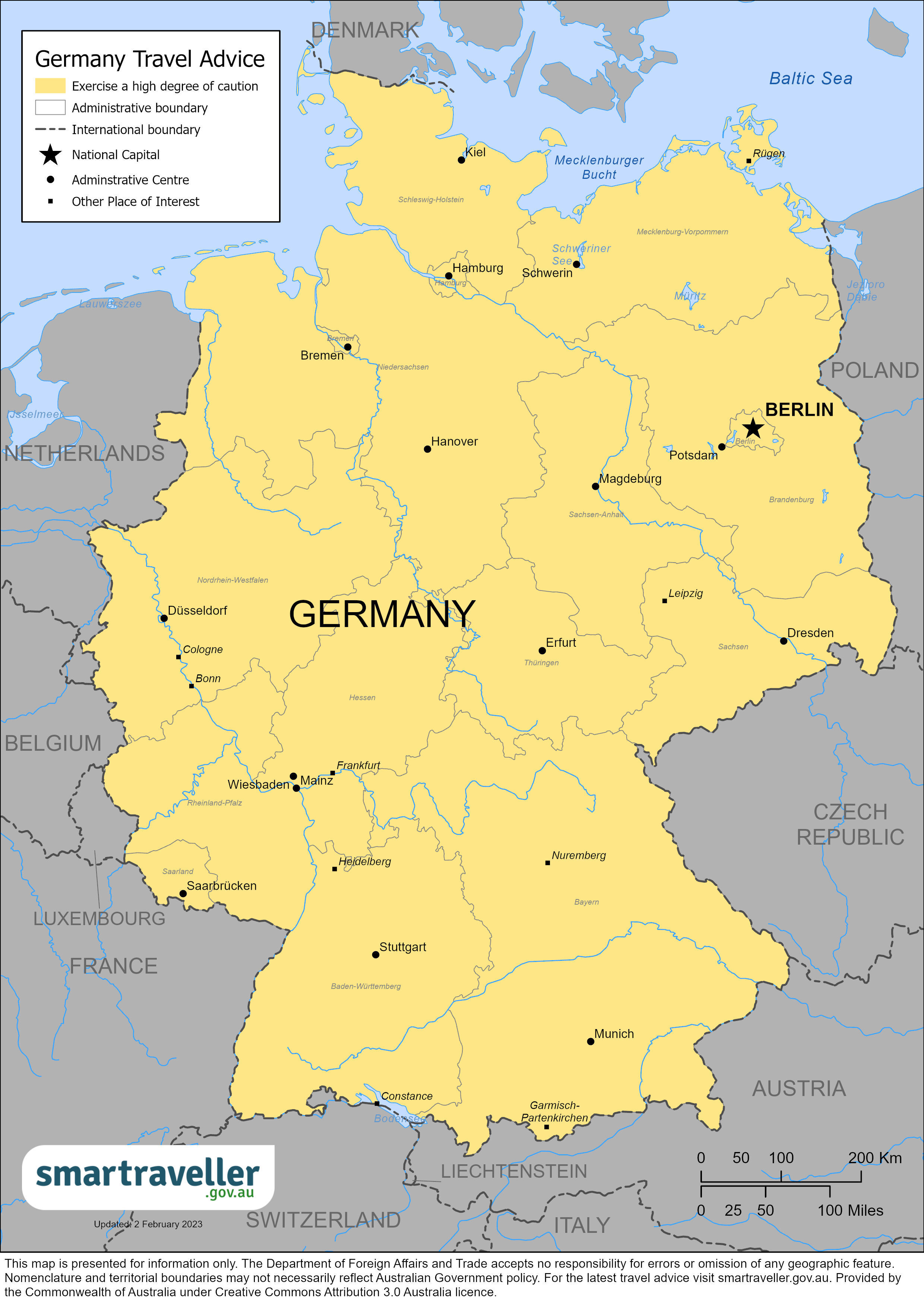
Germany (PDF 384.65 KB)
Europe (PDF 2.62 MB)
Local emergency contacts
Advice levels.
Exercise a high degree of caution in Germany.
Exercise a high degree of caution in Germany due to the threat of terrorism.
- Terrorism is a threat worldwide. Terrorists have staged attacks and threatened more. They may target transport hubs and places foreigners visit, including Christmas markets. Be alert in public places and report suspicious activity to the police.
- Violent crime isn't common, but it does happen. Petty crime occurs occasionally, such as pickpocketing and theft from cars and trains. Take care of your belongings.
- Racial harassment occurs. Take care in cities, particularly in the former East Germany.
- Watch out for drink spiking. It can lead to sexual assault. Stick with people you trust in bars.
Full travel advice: Safety
- Take care when in forests, particularly in Bavaria and Baden-Württemberg. Tick-borne encephalitis is a risk. Ticks are active from spring to autumn. Check your body for ticks and remove them as soon as possible.
- Medical care and facilities are of a high standard.
- If you don't have insurance, hospitals may ask for up-front payment. Costs are higher than in Australia.
Full travel advice: Health
- Nazi symbols, salutes, songs or material, such as flags or memorabilia, are all illegal.
- Always carry a photo ID.
Full travel advice: Local laws
- Entry and exit conditions can change at short notice. You should contact the nearest embassy or consulate of Germany for the latest details.
- Germany is a part of the Schengen area , meaning you can enter Germany without a visa in some cases. In other situations, you'll need a visa.
Full travel advice: Travel

Local contacts
- The Consular Services Charter details what we can and can't do to help you overseas.
- For consular help, contact the Australian Embassy in Berlin or Consulate-General in Frankfurt.
- To stay up to date with local information, follow the embassy’s social media accounts.
Full travel advice: Local contacts
Full advice
Terrorist attacks can occur at any time.
Germany has security measures in place, including at airports and major train stations.
Authorities continue to arrest and charge suspected terrorists.
Recent attacks include knife and vehicle attacks in city centres and on trains. The most recent attack occurred in 2021.
Terrorists may plan more attacks that could happen anywhere at any time.
Recent attacks in European cities have targeted:
- planes and airports
- public transport and transport hubs
- places of worship
- sporting venues
- major events that attract large crowds
Christmas markets and New Year's celebrations are also potential targets for attacks.
To protect yourself from terrorism:
- be alert to possible threats
- be cautious around known targets, including in crowds and public places
- report suspicious activity or items to the police
- monitor the media for new threats
- take official warnings seriously
- follow the advice of local authorities
If there's an attack, leave the area as soon as it's safe. Avoid the affected area in case of secondary attacks.
If you visit Christmas markets, avoid busy times. Have an exit plan if there's a security incident.
Terrorism is a threat worldwide.
More information:
Violent crime isn't common, but criminal attacks unrelated to terrorism can occur.
Monitor the media for news on crime.
Petty crime
Street crime, such as pickpocketing and theft from unattended vehicles, can occur. Bags and personal items can be stolen on trains.
To protect yourself from petty crime:
- pay attention to your personal security, particularly at night
- secure your valuables when visiting the central districts and larger city train stations
Harassment
Racially motivated attacks have occurred. These occur more often in urban areas and the former East Germany.
Drink and needle spiking
Drink and needle spiking can occur at popular nightclubs and markets, often leading to sexual assault .
To protect yourself from drink and needle spiking:
- don't accept drinks from strangers or leave drinks alone
- stick with people you trust in bars and nightclubs
Cyber security
You may be at risk of cyber-based threats during overseas travel to any country. Digital identity theft is a growing concern. Your devices and personal data can be compromised, especially if you're connecting to Wi-Fi, using or connecting to shared or public computers, or to Bluetooth.
Social media can also be risky in destinations where there are social or political tensions or laws that may seem unreasonable by Australian standards. Travellers have been arrested for things they have said on social media. Don't comment on local or political events on your social media.
More information:
- Cyber security when travelling overseas
Kidnapping can happen anywhere, anytime, including in destinations that are typically at lower risk.
The Australian Government's longstanding policy is that it doesn't make payments or concessions to kidnappers.
More information:
- Kidnapping
Civil unrest and political tension
Public protests and events that draw large groups of people can turn violent.
Demonstrations and civil unrest
Climate and natural disasters
Severe weather can affect your travel overseas. Monitor local media for updates.
If you're visiting an area affected by severe weather:
- confirm your plans with your tour operator or travel provider
- check the condition of infrastructure and facilities with local tour operators and hotels
Travel insurance
Get comprehensive travel insurance before you leave.
Your policy needs to cover all overseas medical costs, including medical evacuation. The Australian Government won't pay for these costs.
If you can't afford travel insurance, you can't afford to travel. This applies to everyone, no matter how healthy and fit you are.
If you're not insured, you may have to pay many thousands of dollars up-front for medical care.
- what activities and care your policy covers
- that your insurance covers you for the whole time you'll be away
- Medical Tourism
Physical and mental health
Consider your physical and mental health before you travel, especially if you have an existing medical condition.
See your doctor or travel clinic to:
- have a basic health check-up
- ask if your travel plans may affect your health
- plan any vaccinations you need
Do this at least 8 weeks before you leave.
If you have immediate concerns for your welfare or the welfare of another Australian call the 24-hour Consular Emergency Centre on +61 2 6261 3305 or contact your nearest Australian Embassy, High Commission or Consulate to discuss counselling hotlines and services available in your location .
- General health advice
- Healthy holiday tips (Healthdirect Australia)
Medications
Not all medications available over the counter or by prescription in Australia are available in other countries. Some may even be considered illegal or a controlled substance, even if prescribed by an Australian doctor.
If you plan to bring medication, check if it's legal in Germany. Take enough legal medication for your trip.
You can't send medication to Germany by post.
Carry a copy of your prescription or a letter from your doctor stating:
- what the medication is
- your required dosage
- that it's for personal use
- German Customs
Health risks
Health risks in Germany are similar to those in Australia.
Insect-borne diseases
Tick-borne encephalitis is a risk in forested areas, particularly in Bavaria and Baden-Württemberg. Ticks are common in country areas and are active from spring to autumn.
To protect yourself from disease:
- make sure your accommodation is insect-proof
- always use insect repellent
- wear long, loose, light-coloured clothing
- get vaccinated if you intend to frequently spend time in forests and meadows in affected areas
During and after visiting forested areas:
- check your body for ticks
- remove whole ticks as soon as you can
- monitor the tick site for any signs of infection
- Department of Health and Aged Care
- German Federal Ministry of Health
Medical care
The standard of medical facilities and care is high.
Australia doesn't have a reciprocal health care agreement with Germany. Medical bills can be very expensive.
Hospitals will need you to confirm you have either:
- appropriate insurance, or
- enough money to pay for treatment
Medical practitioners will ask for up-front payment. Medical costs are higher than in Australia.
You're subject to all local laws and penalties, including those that may appear harsh by Australian standards. Research local laws before travelling.
If you're arrested or jailed, the Australian Government will do what it can to help you under our Consular Services Charter . But we can't get you out of trouble or out of jail.
Penalties for drug possession, use or trafficking, even small amounts, include heavy fines and prison sentences.
Follow local regulations when flying drones in Germany. This includes avoiding flying drones in no-fly zones near airports and Oktoberfest venues.
- Digital platform for Unmanned Aviation (in English)
Using or displaying Nazi symbols, salutes, songs, or material such as flags or memorabilia is illegal.
You don't have to carry your passport, but local authorities can ask to see it. You may need to produce it on request. Always carry a photo ID.
Australian laws
Some Australian criminal laws still apply when you're overseas. If you break these laws, you may face prosecution in Australia.
Staying within the law and respecting customs
Dual citizenship
Germany recognises dual nationality.
Dual nationals
Visas and border measures
Every country or territory decides who can enter or leave through its borders. For specific information about the evidence you'll need to enter a foreign destination, check with the nearest embassy, consulate or immigration department of the destination you're entering.
Visitor visas
Germany is a part of the Schengen area , meaning you can enter Germany without a visa in some cases.
You usually don't need a visa if you travel to Germany for less than 3 months as a tourist. Contact the nearest embassy or consulate of Germany if you're travelling to Germany for any other purpose.
For more detailed information on visas to Germany and the German-Australian Agreement on the Exemption of Visa Requirements , visit the website of the German Embassy, Canberra.
Entry and exit conditions can change at short notice. Contact the nearest German embassy or consulate for details about visas, currency, customs and quarantine rules.
Other formalities
Make sure you:
- carry your passport when crossing borders, including within the Schengen area
- monitor border conditions by checking local sources and asking transport providers directly.
Always carry your passport when near the border or when you enter or exit Germany, even when travelling within the Schengen area .
Some countries won't let you enter unless your passport is valid for 6 months after you plan to leave that country. It can apply even if you're just transiting or stopping over.
Some foreign governments and airlines apply the rule inconsistently. You may receive conflicting advice from different sources.
You can end up stranded if your passport is not valid for more than 6 months.
The Australian Government does not set these rules. Check your passport's expiry date before you travel. If you're not sure it'll be valid long enough, consider getting a new passport .
Lost or stolen passport
Your passport is a valuable document. It's attractive to people who may try to use your identity to commit crimes.
Some people may try to trick you into giving them your passport. Always keep it in a safe place.
If your passport is lost or stolen, tell the Australian Government as soon as possible:
- In Australia, contact the Australian Passport Information Service .
- If you're overseas, contact the nearest Australian embassy or consulate .
Passport with 'X' gender identifier
Although Australian passports comply with international standards for sex and gender, we can't guarantee that a passport showing 'X' in the sex field will be accepted for entry or transit by another country. Contact the nearest embassy, high commission or consulate of your destination before you arrive at the border to confirm if authorities will accept passports with 'X' gender markers.
- LGBTI travellers
The currency in Germany is the Euro (EUR).
If you're travelling between Germany and non-EU countries, declare amounts over 10,000 euros or equivalent. This covers all forms of currency, not only cash.
You'll be fined if you don't declare it or give incorrect information on entry or exit.
You don't need to declare it if you travel to or from another EU country.
Local travel
Nationwide and local strikes occur, affecting transport systems, including trains and airline traffic. Monitor the media and contact your travel provider for the latest details.
Oktoberfest
During Oktoberfest and other major cultural and sporting events, there'll be an increased demand for accommodation and transport facilities. Expect delays and plan your travel accordingly.
- Major events
Driving permit
You must be at least 18 years old to drive in Germany.
Always have your driver's licence, insurance and vehicle documents in the vehicle while you're driving.
You can only use your Australian driver's licence in some cases. Check with the Embassy of Germany .
If you plan to drive, get an International Driving Permit (IDP) before you travel.
Road travel
Road conditions are similar to those in Australia, but some basic rules differ.
Parts of the autobahn (highway) network don't have set speed limits. Be prepared for very fast traffic.
Bicycles have the right of way over vehicles turning into side streets.
Vehicles must be fitted with specific tyres (mud and snow) if there's snow, ice or frost on the road.
You'll usually need winter tyres between October and Easter. However, there's no set period, and it varies regionally.
Check for appropriate tyres before accepting a rental vehicle. If the wrong tyres are fitted, you could get a fine, and your insurance company may reject any claim.
Get to know the local road rules before you drive or ride a vehicle.
Pedestrians and bicycles:
- bicycles are common
- many roads have bicycle pathways, usually coloured red, between the pedestrian footpath and the roadway, as well as bicycle traffic lights
- don't walk on these pathways. Cyclists travel fast and have the right of way
- accidents and injuries resulting from collisions between cyclists and pedestrians are common
E-Scooters are common in larger cities:
- You don't need a driver's licence to ride them, but you must be over 14 years of age.
- They must be insured and not driven on pedestrian footpaths
- You can't take passengers on E-Scooters
- Driving or riding
Motorcycles
Ensure your travel insurance covers you when riding a motorbike, quad bike or similar vehicle.
Always wear a helmet.
Taxi drivers who look for business in public places such as the airport may charge you more.
Metered taxis are available from official taxi ranks.
Rideshare services are legal.
Public transport
Germany has a well-developed bus and rail transport system. However, petty crime still happens.
Take care of your personal belongings, particularly on trains and in major transport hubs. Don't leave bags unattended on trains, even briefly.
- Transport and getting around safely
Some international cruise lines stopover in Germany. There are also cruises on major rivers.
- Travelling by boat
Flight disruptions can happen. Reconfirm your travel leading up to your departure and consider what you would do should your flight be rescheduled at the last minute.
DFAT doesn't provide information on the safety of individual commercial airlines or flight paths.
Check Germany's air safety profile with the Aviation Safety Network.
Emergencies
Depending on what you need, contact your:
- family and friends
- travel agent
- insurance provider
Fire and rescue services
Medical emergencies.
For non-urgent criminal issues, contact the local police.
Always get a police report when you report a crime.
Your insurer should have a 24-hour emergency number.
Consular contacts
Read the Consular Services Charter for what the Australian Government can and can't do to help you overseas.
For consular assistance, contact the Australian Embassy in Berlin or the Consulate-General in Frankfurt.
Australian Embassy, Berlin
Wallstrasse 76-79
10179 Berlin
Federal Republic of Germany
Phone: (+49 30) 880088 0
Website: germany.embassy.gov.au
Email: [email protected]
Facebook: https://www.facebook.com/AusEmb.DE
X: @AusAmb_DE
Australian Consulate-General, Frankfurt
Main Tower-28th floor
Neue Mainzer Str. 52/58
60311 Frankfurt/Main
Phone: (+49 69) 90558 0
Email: [email protected]
Check the Embassy website for details about opening hours and any temporary closures.
24-hour Consular Emergency Centre
In a consular emergency, if you can't contact an embassy, contact the 24-hour Consular Emergency Centre on:
- +61 2 6261 3305 from overseas
- 1300 555 135 in Australia

Travelling to Germany?
Sign up to get the latest travel advice updates..
Be the first to know official government advice when travelling.
- Skip to main content
- Skip to "About this site"
Language selection
Search travel.gc.ca.
Help us to improve our website. Take our survey !
COVID-19: travel health notice for all travellers
Germany travel advice
Latest updates: The Need help? section was updated.
Last updated: March 25, 2024 15:08 ET
On this page
Safety and security, entry and exit requirements, laws and culture, natural disasters and climate, germany - exercise a high degree of caution.
Exercise a high degree of caution in Germany due to the threat of terrorism.
Back to top
Petty crime
Petty crime, such as pickpocketing and bag snatching, occurs.
Organized groups of pickpockets often use distraction techniques and are particularly active in:
- major cities
- transportation hubs
- public transportation
- Christmas markets
- tourist attractions
There is a significant increase in stolen passports on trains, particularly during the summer and winter holiday season.
Ensure that your belongings, including your passport and other travel documents, are secure at all times.
Violent crime
Violent crime is uncommon, but does occur.
Crimes committed by far-right extremists against individuals belonging to ethnic, religious or political minorities occur.
While tourists are not specifically targeted, you could find yourself in the wrong place at the wrong time.
Always be vigilant and aware of your surroundings.
Cybercrime occurs. Perpetrators may compromise public Wi-Fi networks to steal credit card or personal information.
- Avoid using unsecured public Wi-Fi networks
- Avoid making purchases on unencrypted websites
- Be cautious when posting information on social media
- Be particularly vigilant when contacting or meeting individuals known over the internet
Overseas fraud
There is a threat of terrorism in Europe. Terrorists have carried out attacks in several European cities. Terrorist attacks could occur at any time.
Targets could include:
- government buildings, including schools
- places of worship
- airports and other transportation hubs and networks
- public areas such as tourist attractions, restaurants, bars, coffee shops, shopping centres, Christmas markets, hotels and other sites frequented by foreigners
The Government of Germany maintains a public alert system on terrorism. Alert level changes are communicated through local media.
- Always be aware of your surroundings when in public places
- Be particularly vigilant if attending sporting events and during religious holidays and other public celebrations, as terrorists have used such occasions to mount attacks
More information about public security - Germany’s Federal Ministry of the Interior, Building and Community
Demonstrations
Demonstrations take place regularly. Even peaceful demonstrations can turn violent at any time. They can also lead to disruptions to traffic and public transportation.
- Avoid areas where demonstrations and large gatherings are taking place
- Follow the instructions of local authorities
- Monitor local media for information on ongoing demonstrations
Mass gatherings (large-scale events)
Strikes occur regularly, particularly in key sectors including aviation and ground transport. These strikes can sometimes complicate travel and disrupt services.
- Consult local media to be aware of strikes that may affect your stay or travel plans
- In the event of a transport strike, plan extra time to get to your destination
Mountain activities
If you intend to go hiking, mountaineering or skiing:
- never do so alone and always hire an experienced guide from a reputable company
- buy travel insurance that includes helicopter rescue and medical evacuation
- ensure that your physical condition is good enough to meet the challenges of your activity
- ensure that you are properly equipped and well informed about weather and other conditions that may pose a hazard
- inform a family member or friend of your itinerary, including when you expect to be back
- obtain detailed information on trekking routes or ski slopes before setting out and do not venture off marked trails or slopes
Road safety
Roads conditions and road safety are excellent throughout the country.
Pedestrians should exercise caution when crossing dedicated bicycle paths, as bicycles have right of way.
We do not make assessments on the compliance of foreign domestic airlines with international safety standards.
Information about foreign domestic airlines
Every country or territory decides who can enter or exit through its borders. The Government of Canada cannot intervene on your behalf if you do not meet your destination’s entry or exit requirements.
We have obtained the information on this page from the German authorities. It can, however, change at any time.
Verify this information with the Foreign Representatives in Canada .
- Schengen area
Canadian citizens do not need a visa for travel to countries within the Schengen area. However, visa-free travel only applies to stays of up to 90 days in any 180-day period. Stays are cumulative and include visits to any Schengen area country.
If you plan to stay in the Schengen area for a longer period of time, you will need a visa. You must contact the high commission or embassy of the country or countries you are travelling to and obtain the appropriate visa(s) prior to travel.
Useful links
- Foreign Representatives in Canada
Temporary border controls
The German government has reintroduced internal border controls at certain border crossings. You may be required to pass through immigration controls when entering Germany, even if arriving from another Schengen area country.
Entry requirements vary depending on the type of passport you use for travel.
Before you travel, check with your transportation company about passport requirements. Its rules on passport validity may be more stringent than the country’s entry rules.
Regular Canadian passport
Your passport must be valid for at least 3 months beyond the date you expect to leave the Schengen area.
Passport for official travel
Different entry rules may apply.
Official travel
Passport with “X” gender identifier
While the Government of Canada issues passports with an “X” gender identifier, it cannot guarantee your entry or transit through other countries. You might face entry restrictions in countries that do not recognize the “X” gender identifier. Before you leave, check with the closest foreign representative for your destination.
Other travel documents
Different entry rules may apply when travelling with a temporary passport or an emergency travel document. Before you leave, check with the closest foreign representative for your destination.
- Foreign Representatives in Canada
- Canadian passports
Tourist visa: not required for stays up to 90 days in any 180-day period Business visa: not required for stays up to 90 days Student visa: required
Extension of stay
As a tourist, you can’t stay in Germany longer than 90 days. If you wish to stay beyond this 90-day limit, you must apply for a residence permit and provide a valid reason.
If you unexpectedly have to stay beyond the 90-day limit, contact the Foreigners’ Registration Office (Ausländerbehörde) in the district you are staying in to regularize your extended stay.
Registration
If you intend to reside in Germany for more than 3 months, you must register at the local Residents‘ Registration Office (Einwohnermeldeamt), usually within 7 days of your entry into the country.
If you don’t, you may be fined.
Other entry requirements
Customs officials may ask you to show them a return or onward ticket and proof of sufficient funds to cover your stay.
Yellow fever
Learn about potential entry requirements related to yellow fever (vaccines section).
Children and travel
Learn more about travelling with children .
Relevant Travel Health Notices
- Global Measles Notice - 13 March, 2024
- COVID-19 and International Travel - 13 March, 2024
This section contains information on possible health risks and restrictions regularly found or ongoing in the destination. Follow this advice to lower your risk of becoming ill while travelling. Not all risks are listed below.
Consult a health care professional or visit a travel health clinic preferably 6 weeks before you travel to get personalized health advice and recommendations.
Routine vaccines
Be sure that your routine vaccinations , as per your province or territory , are up-to-date before travelling, regardless of your destination.
Some of these vaccinations include measles-mumps-rubella (MMR), diphtheria, tetanus, pertussis, polio, varicella (chickenpox), influenza and others.
Pre-travel vaccines and medications
You may be at risk for preventable diseases while travelling in this destination. Talk to a travel health professional about which medications or vaccines may be right for you, based on your destination and itinerary.
Yellow fever is a disease caused by a flavivirus from the bite of an infected mosquito.
Travellers get vaccinated either because it is required to enter a country or because it is recommended for their protection.
- There is no risk of yellow fever in this country.
Country Entry Requirement*
- Proof of vaccination is not required to enter this country.
Recommendation
- Vaccination is not recommended.
* It is important to note that country entry requirements may not reflect your risk of yellow fever at your destination. It is recommended that you contact the nearest diplomatic or consular office of the destination(s) you will be visiting to verify any additional entry requirements.
About Yellow Fever
Yellow Fever Vaccination Centres in Canada
Tick-borne encephalitis (TBE) is a risk in some areas of this destination. It is a viral disease that affects the central nervous system (brain and spinal cord). It is spread to humans by the bite of infected ticks or occasionally when unpasteurized milk products are consumed.
Travellers to areas where TBE is found may be at higher risk during April to November, and the risk is highest for people who hike or camp in forested areas.
Protect yourself from tick bites . The vaccine is not available in Canada. It may be available in the destination you are travelling to.
Measles is a highly contagious viral disease. It can spread quickly from person to person by direct contact and through droplets in the air.
Anyone who is not protected against measles is at risk of being infected with it when travelling internationally.
Regardless of where you are going, talk to a health care professional before travelling to make sure you are fully protected against measles.
Hepatitis B is a risk in every destination. It is a viral liver disease that is easily transmitted from one person to another through exposure to blood and body fluids containing the hepatitis B virus. Travellers who may be exposed to blood or other bodily fluids (e.g., through sexual contact, medical treatment, sharing needles, tattooing, acupuncture or occupational exposure) are at higher risk of getting hepatitis B.
Hepatitis B vaccination is recommended for all travellers. Prevent hepatitis B infection by practicing safe sex, only using new and sterile drug equipment, and only getting tattoos and piercings in settings that follow public health regulations and standards.
Coronavirus disease (COVID-19) is an infectious viral disease. It can spread from person to person by direct contact and through droplets in the air.
It is recommended that all eligible travellers complete a COVID-19 vaccine series along with any additional recommended doses in Canada before travelling. Evidence shows that vaccines are very effective at preventing severe illness, hospitalization and death from COVID-19. While vaccination provides better protection against serious illness, you may still be at risk of infection from the virus that causes COVID-19. Anyone who has not completed a vaccine series is at increased risk of being infected with the virus that causes COVID-19 and is at greater risk for severe disease when travelling internationally.
Before travelling, verify your destination’s COVID-19 vaccination entry/exit requirements. Regardless of where you are going, talk to a health care professional before travelling to make sure you are adequately protected against COVID-19.
The best way to protect yourself from seasonal influenza (flu) is to get vaccinated every year. Get the flu shot at least 2 weeks before travelling.
The flu occurs worldwide.
- In the Northern Hemisphere, the flu season usually runs from November to April.
- In the Southern Hemisphere, the flu season usually runs between April and October.
- In the tropics, there is flu activity year round.
The flu vaccine available in one hemisphere may only offer partial protection against the flu in the other hemisphere.
The flu virus spreads from person to person when they cough or sneeze or by touching objects and surfaces that have been contaminated with the virus. Clean your hands often and wear a mask if you have a fever or respiratory symptoms.
In this destination, rabies may be present in some wildlife species, including bats. Rabies is a deadly disease that spreads to humans primarily through bites or scratches from an infected animal.
If you are bitten or scratched by an animal while travelling, immediately wash the wound with soap and clean water and see a health care professional.
Before travel, discuss rabies vaccination with a health care professional. It may be recommended for travellers who will be working directly with wildlife.
Safe food and water precautions
Many illnesses can be caused by eating food or drinking beverages contaminated by bacteria, parasites, toxins, or viruses, or by swimming or bathing in contaminated water.
- Learn more about food and water precautions to take to avoid getting sick by visiting our eat and drink safely abroad page. Remember: Boil it, cook it, peel it, or leave it!
- Avoid getting water into your eyes, mouth or nose when swimming or participating in activities in freshwater (streams, canals, lakes), particularly after flooding or heavy rain. Water may look clean but could still be polluted or contaminated.
- Avoid inhaling or swallowing water while bathing, showering, or swimming in pools or hot tubs.
Insect bite prevention
Many diseases are spread by the bites of infected insects such as mosquitoes, ticks, fleas or flies. When travelling to areas where infected insects may be present:
- Use insect repellent (bug spray) on exposed skin
- Cover up with light-coloured, loose clothes made of tightly woven materials such as nylon or polyester
- Minimize exposure to insects
- Use mosquito netting when sleeping outdoors or in buildings that are not fully enclosed
To learn more about how you can reduce your risk of infection and disease caused by bites, both at home and abroad, visit our insect bite prevention page.
Find out what types of insects are present where you’re travelling, when they’re most active, and the symptoms of the diseases they spread.
Animal precautions
Some infections, such as rabies and influenza, can be shared between humans and animals. Certain types of activities may increase your chance of contact with animals, such as travelling in rural or forested areas, camping, hiking, and visiting wet markets (places where live animals are slaughtered and sold) or caves.
Travellers are cautioned to avoid contact with animals, including dogs, livestock (pigs, cows), monkeys, snakes, rodents, birds, and bats, and to avoid eating undercooked wild game.
Closely supervise children, as they are more likely to come in contact with animals.
Person-to-person infections
Stay home if you’re sick and practise proper cough and sneeze etiquette , which includes coughing or sneezing into a tissue or the bend of your arm, not your hand. Reduce your risk of colds, the flu and other illnesses by:
- washing your hands often
- avoiding or limiting the amount of time spent in closed spaces, crowded places, or at large-scale events (concerts, sporting events, rallies)
- avoiding close physical contact with people who may be showing symptoms of illness
Sexually transmitted infections (STIs) , HIV , and mpox are spread through blood and bodily fluids; use condoms, practise safe sex, and limit your number of sexual partners. Check with your local public health authority pre-travel to determine your eligibility for mpox vaccine.
Medical services and facilities
Health care is excellent. Service is available throughout the country.
Private healthcare is expensive. Care providers usually require upfront payment. If you need a detailed breakdown of expenses for a Canadian insurance claim, make sure you clearly request it, as German hospitals don’t usually provide one.
Make sure you get travel insurance that includes coverage for medical evacuation and hospital stays.
Travel health and safety
Keep in Mind...
The decision to travel is the sole responsibility of the traveller. The traveller is also responsible for his or her own personal safety.
Be prepared. Do not expect medical services to be the same as in Canada. Pack a travel health kit , especially if you will be travelling away from major city centres.
You must abide by local laws.
Learn about what you should do and how we can help if you are arrested or detained abroad .
Transfer to a Canadian prison
Canada and Germany are signatories to the Convention on the Transfer of Sentenced Persons. This enables a Canadian imprisoned in Germany to request a transfer to a Canadian prison to complete a sentence. The transfer requires the agreement of both Canadian and Germany authorities.
This process can take a long time, and there is no guarantee that the transfer will be approved by either or both sides.
Identification
Local police may ask to see your identification at any time.
- Carry adequate identification at all times, such as your passport or residence permit
- Keep a photocopy of your passport in a safe place, in case it is lost or stolen
Penalties for possession, use or trafficking of illegal drugs are severe. Convicted offenders can expect jail sentences or heavy fines.
Drugs, alcohol and travel
Illegal activities
There are strict laws regarding the diffusion of propaganda material and the use of symbols from the Nazi party or other organizations linked to fascism and the Third Reich.
Illegal activities may include:
- diffusing or sharing propaganda, including online
- producing, importing or exporting memorabilia
- publicly wearing, using or display symbols and greetings related to these organizations
Convicted offenders can expect jail sentences or fines.
Dual citizenship
Dual citizenship is legally recognized in Germany.
If you are a Canadian citizen, but also a citizen of Germany, our ability to offer you consular services may be limited while you're there. You may also be subject to different entry/exit requirements .
Travellers with dual citizenship
International Child Abduction
The Hague Convention on the Civil Aspects of International Child Abduction is an international treaty. It can help parents with the return of children who have been removed to or retained in certain countries in violation of custody rights. The convention applies between Canada and Germany.
If your child was wrongfully taken to, or is being held in Germany, and if the applicable conditions are met, you may apply for the return of your child to the German court.
If you are in this situation:
- act as quickly as you can
- contact the Central Authority for your province or territory of residence for information on starting an application under The Hague Convention
- consult a lawyer in Canada and in Germany to explore all the legal options for the return of your child
- report the situation to the nearest Canadian government office abroad or to the Vulnerable Children’s Consular Unit at Global Affairs Canada by calling the Emergency Watch and Response Centre
If your child was removed from a country other than Canada, consult a lawyer to determine if The Hague Convention applies.
Be aware that Canadian consular officials cannot interfere in private legal matters or in another country’s judicial affairs.
- List of Canadian Central Authorities for the Hague Convention
- International Child Abduction: A Guidebook for Left-Behind Parents
- Travelling with children
- The Hague Convention - Hague Conference on Private International Law
- Canadian embassies and consulates by destination
- Emergency Watch and Response Centre
You must be at least 18 years old to drive a vehicle in Germany.
You can use your valid Canadian driver’s licence for up to 6 months. After 6 months, you must exchange your Canadian licence for a German one. Allow up to 6 weeks for German authorities to exchange your licence.
You must always carry written permission from the registered owner of the vehicle if the vehicle doesn’t belong to you.
Winter tires are mandatory during icy conditions.
Speed limits
Speed limits vary considerably in Germany. On the highway network (autobahn), limits are generally much higher than the ones in Canada. On certain sections, there are no speed limits.
- Drive carefully
- Be mindful of speed regulations
Low-emission zones
Certain cities have put in place low-emission zones (Umweltzone) to reduce air pollution.
Access to these zones is restricted. You may need to obtain a permit to prove that your vehicle responds to environmental standards.
Personal light electric vehicles
Drivers of light electric vehicles, such as electric scooters and e-skateboards, must follow the rules of the road. Insurance is mandatory.
To drive such vehicles, your blood alcohol limit must not exceed 0.05%. New drivers and individuals under 21 years of age must not have any alcohol in their system. Convicted offenders can face heavy fines and have their licence confiscated on the spot. Authorities may ask for the fine to be paid right away.
You cannot drive on pedestrian walkways and in pedestrian zones.
- More about driving in Germany - European Commission
- Low-emission zones in Germany - German Environment Agency
- Personal Light Electric Vehicles - Federal Ministry of Transport and Digital Infrastructure
The currency of Germany is the euro (EUR).
If you are carrying €10,000 or more, or the equivalent in other currencies, you must make a declaration to customs when you enter or leave the European Union. It includes sums in:
- banknotes and coins
- bearer negotiable instruments such as cheques, travellers’ cheques, promissory notes and money orders
- bonds, shares
- gold coins with a gold content of at least 90 %
- gold bars, nuggets or clumps with a gold content of at least 99.5 %
- any other convertible asset
This does not apply if you are travelling within the European Union or in transit to a non-EU country.
EU cash controls - European Commission
Flooding and landslides
Heavy rains, particularly in spring and summer, can cause severe flooding and landslides. Roads may become impassable and infrastructure damaged.
- Exercise caution, particularly in areas around major rivers
- Stay informed of the latest regional weather forecasts
- Download the Nina warning app to receive important alerts from German authorities
- Follow the advice of local authorities, including evacuation orders
- Emergency preparation - Federal Office for Civil Protection and Disaster Assistance (in German)
- Nina warning app - Federal Office for Civil Protection and Disaster Assistance (in German)
Forest fires may occur, particularly during summer months.
The air quality in areas near active fires may deteriorate due to heavy smoke.
In case of a major fire:
- stay away from affected areas, particularly if you suffer from respiratory ailments
- monitor local media for up-to-date information on the situation
- follow the advice of local authorities
There is a risk of avalanches in mountainous regions, especially following heavy snowfalls. Some have resulted in deaths.
Be particularly careful in the alpine areas of Bavaria.
Avalanche forecasting and warnings - European Avalanche Warning Services (EAWS)
Local services
In case of emergency, dial:
- police: 110
- medical assistance: 112
- firefighters: 112
Consular assistance
For emergency consular assistance, call the embassy of Canada to Germany, in Berlin, and follow the instructions. At any time, you may also contact the Emergency Watch and Response Centre in Ottawa.
The decision to travel is your choice and you are responsible for your personal safety abroad. We take the safety and security of Canadians abroad very seriously and provide credible and timely information in our Travel Advice to enable you to make well-informed decisions regarding your travel abroad.
The content on this page is provided for information only. While we make every effort to give you correct information, it is provided on an "as is" basis without warranty of any kind, expressed or implied. The Government of Canada does not assume responsibility and will not be liable for any damages in connection to the information provided.
If you need consular assistance while abroad, we will make every effort to help you. However, there may be constraints that will limit the ability of the Government of Canada to provide services.
Learn more about consular services .
Risk Levels
take normal security precautions.
Take similar precautions to those you would take in Canada.
Exercise a high degree of caution
There are certain safety and security concerns or the situation could change quickly. Be very cautious at all times, monitor local media and follow the instructions of local authorities.
IMPORTANT: The two levels below are official Government of Canada Travel Advisories and are issued when the safety and security of Canadians travelling or living in the country or region may be at risk.
Avoid non-essential travel
Your safety and security could be at risk. You should think about your need to travel to this country, territory or region based on family or business requirements, knowledge of or familiarity with the region, and other factors. If you are already there, think about whether you really need to be there. If you do not need to be there, you should think about leaving.
Avoid all travel
You should not travel to this country, territory or region. Your personal safety and security are at great risk. If you are already there, you should think about leaving if it is safe to do so.

- Countries & Regions
- International Organisations (IOs)
- Climate Change
- Counter Terrorism
- Disarmament
- Cybersecurity
- International Peacekeeping
- Singapore's Voluntary National Review
- Small States
- Sustainable Development
- Pedra Branca
- Singapore Universal Periodic Review
- Water Agreements
- Find A Singapore Overseas Mission
- Foreign Representatives To Singapore
- COVID-19 Information
- Travel Tips
- Visa Information
- I Need Help Overseas
- Passport Matters
- Legalisation of Documents
- Travel Advisories and Notices
- Useful links
- Press Statements, Transcripts & Photos
- Announcements and Highlights
- Experience Singapore
- Foreign Service Officer (Functional and Corporate)
- Foreign Service Officer (Political and Economic)
- Foreign Service Administration Specialist
- Job Opportunities
- Pre-University
- Undergraduate
- Foreign Service Scholarships
- Recruitment
- Scholarship
- Reach.gov.sg
Expand All | Collapse All
Ministry of Health (MOH) Public Health Advisory
Travellers should refer to the ICA website for the latest information on travelling to/from or transiting through Singapore. For the latest updates on Singapore’s COVID-19 situation, please refer to the MOH website at https://www.moh.gov.sg/covid-19 .
COVID-19 Travel Restrictions
In view of the COVID-19 situation, travellers visiting Germany should be prepared for updates to entry requirements. Please visit the following links for the latest information.
German Federal Foreign Office - Information on entry restrictions, testing, and quarantine regulations in Germany
https://www.auswaertiges-amt.de/en/einreiseundaufenthalt/coronavirus
German Federal Ministry of the Interior, Building and Community – Frequently asked questions related to travel restrictions/border control measures
https://www.bmi.bund.de/SharedDocs/faqs/EN/topics/civil-protection/coronavirus/travel-restrictions-border-control/travel-restriction-border-control-list.html
German Federal Ministry of Health – Current information for travellers
https://www.bundesgesundheitsministerium.de/en/coronavirus/current-information-for-travellers.html
German Federal Ministry of Health – FAQs on proof for entry into Germany https://www.bundesgesundheitsministerium.de/en/coronavirus/infos-reisende/faq-tests-einreisende.html
German Embassy in Singapore – Information on entry into Germany, and quarantine regulations
https://singapur.diplo.de/sg-en
Entry and Exit
Singaporeans do not require a visa for visits less than 90 days within a period of six months. For stays longer than 90 days, you are required to apply for specific visas (i.e. with listed purposes such as for study, work, or family reunion), which have a maximum validity of 90 days, prior to travel to Germany. After arriving in Germany, this visa has to be converted into a long-term resident permit based on the total requested length of stay. The conversion can be done at the local Office for Foreigners (sometimes referred as “Aliens’ Office”). Please note that resident permit will not be granted to applicants who enter Germany using the 90-day visa free privilege (i.e. without applying for a specific visa at the German Embassy in their home countries prior to travel) and seek to extend their stay in Germany thereafter. The Office for Foreigners or “Aliens’ Office” will also not grant an extension of the resident permit if the original purpose for the application of the resident permit in Germany has changed. In this case, the applicant has to leave Germany to obtain a new specific visa in his or her home country, and re-apply for a new resident permit when they travel again to Germany thereafter.
As immigration requirements can change at short notice, travellers are advised to contact their travel agent or the Embassy of Germany in Singapore for the latest information.
Safety and Security
Singaporeans are advised to exercise normal travel precautions and vigilance in crowded areas.
Germany has strict laws governing the following:
- Insult of government officials.
- Bringing into, or taking out of, Germany any literature, music, or paraphernalia that glorifies fascism, the “Nazi past”, or the “Third Reich”.
- Use of the Nazi salute in Germany.
- Breach of domestic peace such as trespassing, disturbance of peace in private properties.
- Driving under the influence of alcohol.
Additional Information
Notice: Closure of Honorary Consulate-General of the Republic of Singapore in Stuttgart, Germany
The Honorary Consulate-General of the Republic of Singapore in Stuttgart, Germany is closed until further notice. For consular assistance, please contact the Embassy of the Republic of Singapore in Berlin or the Honorary Consulate of the Republic of Singapore in Munich, Germany. The contact details are:
Embassy of the Republic of Singapore in Berlin
Voßstraße 17, 10117 Berlin, Federal Republic of Germany
Tel: +49 (30) 2263 430
Emergency Tel (after office hours): +49 152 2341 2182
Email: [email protected]
Honorary Consulate-General of the Republic of Singapore in Munich, Germany
Maximilianstraße 32, 80539 Munich, Federal Republic of Germany
Tel: +49 (89) 58801 0380
Email: [email protected]
General Travel Advice
Overseas Travel – Be Informed & Be Safe [Updated on 5 February 2024]
Singaporeans planning overseas travel are reminded to take the necessary precautions, including being prepared to deal with accidents, natural disasters or terrorist attacks. Singaporeans are also reminded to be familiar with your destination’s local laws, customs, and COVID-19 regulations.
Demonstrations do occur in major cities across the world. Such demonstrations can sometimes escalate into violence. It is important for Singaporeans to keep abreast of local news, avoid any protests or demonstrations and heed the advice of the local authorities.
When participating in outdoor leisure activities overseas, Singaporeans should be mindful that certain sporting activities, especially in open seas, may carry risks. Besides ensuring that one has the physical competencies and appropriate condition to undertake the activity, every effort should be made to ascertain if the trip organiser or guide is reliable and competent, and that appropriate safety and contingency plans are in place. When in doubt, Singaporeans should consult the relevant professional bodies or sporting associations for specific advice.
For those planning to travel, here are some tips:
Before travelling
- Familiarise yourself with our network of overseas missions.
- Purchase comprehensive travel insurance and be familiar with the terms and coverage.
- Equip yourself with research about your destination’s entry requirements, current situation, local laws and customs.
- eRegister with us on our website ( www.mfa.gov.sg ) so that we may reach out to you during an emergency.
While travelling
- Always take care of your personal safety, remain vigilant and monitor local weather news, advisories, and security developments.
- Exercise caution around large gatherings and avoid locations known for demonstrations or disturbances.
- Be prepared for possible delays and last-minute changes in travel plans especially during unforeseen events such as natural disasters, social unrest or terror attacks.
- Stay connected with your friends and family. Inform them of your whereabouts and provide them with your overseas contact details.
- In the event that you require consular assistance, please contact the nearest Singapore Overseas Mission or call the Ministry of Foreign Affairs Duty Office at +65 6379 8800/+65 6379 8855.
Advisory: Email Scams
There have been reports of individuals receiving scam emails/messages purportedly sent from friends in distress overseas. These emails/messages typically originate from an email address/social media known to the receiver bearing claims of the sender getting into trouble overseas and urgently requesting financial assistance. The sender would also claim to have approached a Singapore Embassy/Consulate and the local Police for help to no avail.
MFA takes the safety of all Singaporeans very seriously. Singaporeans in distress approaching our Overseas Missions for assistance will be rendered with all necessary consular assistance. If you receive such emails/messages from purported friends seeking funds transfers, we strongly advise you to call them first to verify the authenticity of the emails/messages before responding to their request. It is also not advisable to give out any personal information such as NRIC/passport numbers, address, telephone number, etc. Any form of reply, even one of non-interest, could result in more unsolicited emails. Members of the public who suspect that they have fallen prey to such scams should report the matter to the Police immediately. Should Singaporeans abroad require consular assistance, they can contact the nearest Singapore Overseas Mission or call the Ministry of Foreign Affairs 24-hr Duty Office at +65 6379 8800/+65 6379 8855.
The Ministry of Foreign Affairs is a ministry of the Government of Singapore responsible for conducting and managing diplomatic relations between Singapore and other countries and regions.
Travel Page
- Share full article
Advertisement
Supported by
Expert Panel Calls on Germany to Legalize Abortion in First 12 Weeks
For decades, Germany allowed early abortions even while keeping them illegal. A government-appointed commission says the system is “untenable.”

By Erika Solomon
Reporting from Berlin
A government-appointed commission in Germany recommended on Monday that lawmakers legalize abortion during the first trimester of pregnancy, a move that could push the country into a long-avoided debate on an issue that for decades remained in a legal gray zone.
Outside of exceptions for medical reasons or because of rape, abortions in Germany are technically illegal. But, in practice, they are broadly permitted in the first 12 weeks if a woman has received mandatory counseling and then waits at least three days to terminate the pregnancy.
Abortion rights activists say Germany has grown increasingly out of sync with the rest of Europe, where several countries have recently moved to loosen restrictions on abortion or to bolster laws protecting access to the procedure — especially after the U.S. Supreme Court overturned Roe v. Wade in 2022 .
Last month, legislators in France voted to explicitly enshrine access to abortion in the Constitution, making their country the first in the world to do so.
In Poland, where a previous conservative government enacted a near-total ban on abortion, politicians are moving forward with draft legislation to loosen some of Europe’s most restrictive abortion laws.
Last year, Germany’s chancellor, Olaf Scholz followed through on one of the agenda items set out by his governing coalition by setting up a commission of ethicists, doctors, psychiatrists and other experts to issue recommendations on abortion, egg donations and surrogacy.
But a year on, his three-way coalition — Mr. Scholz’s Social Democrats, the Greens and the Free Democrats — is under growing strain because of internal disputes on issues ranging from nuclear power to climate policy .
While there are some anti-abortion activists in Germany who want to ban the procedure entirely, most conservatives and the Roman Catholic Church are in favor of the status quo — keeping abortion technically illegal, but tolerated, even though they oppose it.
“We consider it wrong to relativize the fundamental dignity of every human being, including the unborn child, and to relativize, restrict or downgrade the associated fundamental right to life,” Bishop Georg Bätzing of Limburg, who is also the chairman of the German Bishops’ Conference, told journalists over the weekend.
The government appears reluctant to open a new societal debate by immediately proposing a law following the commission’s recommendations.
“What we can’t have are debates that set society on fire or even divide it,” Marco Buschmann, Germany’s justice minister, said at a news conference announcing the commission’s findings. He pointed to the intensity of debate in Poland and the United States as a reason for proceeding with caution.
Germany’s largest opposition party, the conservative Christian Democrats, have warned they would challenge any attempts at changing the status quo.
Only six countries in Europe retain restrictive abortion laws, according to the Center for Reproductive Rights, an international group that advocates for abortion access. Adriana Lamačkova, the group’s associate director for Europe, said that Germany remains an outlier in a broader trend toward expanding access to abortion.
“The legislative trend in Europe is crystal clear,” she said. “What Germany does, and seems to be the only country in Europe to do, is regulate abortion in the penal code in a way that considers all abortions unlawful.”
For decades, Germany tried to evade contentious debate through a societal understanding in which abortion was tolerated but not decriminalized.
Although East Germany’s communist regime passed one of the most progressive abortion laws in Europe in 1972, legalizing it until the 12th week, an attempt to enact a similar law in West Germany two years later was overturned as unconstitutional by the country’s supreme court, on the grounds that it deprived the unborn of the right to life, and violated the protection of human life guaranteed in the constitution.
But in the years that followed, West Germany broadly adopted a practice in which abortions were technically illegal but could be given, unpunished, with a doctor’s approval.
After German reunification, an attempt to legalize abortion was again overturned by the supreme court in 1993. But it was allowed with counseling and a three-day wait period. The court said the mandatory counseling was a state obligation to try to “encourage” a woman to continue the pregnancy.
It was only in 2022 that Germany overturned a Nazi-era law that banned doctors from disseminating information about abortion services.
On Monday, the panel of experts commissioned by the government urged the country to enshrine abortion access into law.
“Legislators should take action here and make abortion legal and unpunishable,” Liane Wörner, a spokeswoman for the commission, said at a news conference.
The commission said that legislators could also decriminalize second-trimester abortions, but it did not issue any specific recommendation. Abortions from the 22nd week onward should remain “fundamentally illegal,” but “do not necessarily have to be punishable,” the commission said.
But the panel argued that the current system in which early abortions were allowed but technically illegal was “untenable,” according to Ms. Wörner, the commission spokeswoman, who is a law professor at the University of Konstanz.
“The right to life does not have the same weight before birth as it does afterward,” she said at the news conference. “If the right to life were equal, conflicts between life and life could not be resolved. And abortion would be illegal even in situations in which the continuation of the pregnancy endangers the life of the pregnant woman.”
But it remains unlikely that Mr. Scholz’s government will propose a new law to legalize abortions, out of fear that it could stoke fresh tensions with conservative lawmakers.
The 30-year compromise in the country “is not satisfactory for many, but it has created social peace on this issue,” said Alexander Dobrindt, the parliamentary leader for the Christian Social Union.
At the news conference on Monday presenting the panel’s findings, Karl Lauterbach, Germany’s health minister, suggested that the issue should be discussed first in Parliament before the government formulates any draft proposal.
Get Covered in Germany: Understanding German Visa Health Insurance

Health insurance is mandatory for all residents in Germany, including international visitors staying for an extended period. Whether you're relocating for work, study, or family reasons, having adequate health insurance coverage is essential to ensure access to quality healthcare services and protect against unexpected medical expenses.
For individuals applying for a German visa, demonstrating proof of health insurance coverage is a prerequisite for obtaining the visa. Without adequate health insurance in place, your visa application may be rejected, delaying your plans to move to Germany.
Types of Health Insurance for German Visa Holders
There are two main types of health insurance options available for individuals applying for a German visa:
Statutory Health Insurance (Gesetzliche Krankenversicherung - GKV): Statutory health insurance is the standard form of health insurance in Germany and is available to employees with an income below a certain threshold (approximately EUR64,350 per year in 2022). Contributions to statutory health insurance are shared between employers and employees and provide comprehensive coverage for essential medical services.
Private Health Insurance (Private Krankenversicherung - PKV): Private health insurance is an alternative option for individuals who are not eligible for statutory health insurance, such as self-employed individuals, high-income earners, and certain other groups. Private health insurance offers more flexibility and customization options but typically comes with higher premiums.
Requirements for German Visa Health Insurance
When applying for a German visa, there are specific requirements that your health insurance policy must meet to be accepted:
Coverage Validity: Your health insurance coverage must be valid for the entire duration of your stay in Germany and meet the minimum coverage requirements set by German authorities.
Comprehensive Coverage: Your health insurance policy must provide comprehensive coverage for essential medical services, including doctor visits, hospital stays, prescription medications, and emergency care.
Accepted Providers: Your health insurance policy must be provided by an approved insurance provider recognized by German authorities. Ensure that your insurance provider is reputable and compliant with German regulations.
Proof of Coverage: You must provide documented proof of your health insurance coverage when submitting your visa application. This typically includes a letter or certificate from your insurance provider confirming your coverage details.
Navigating the Process
Navigating the process of obtaining health insurance for a German visa can be complex, especially for newcomers unfamiliar with the German healthcare system. Here are some steps to help you navigate the process effectively:
Research Options: Research the different health insurance options available in Germany, including statutory health insurance and private health insurance, to determine which option best suits your needs and circumstances.
Compare Policies: Compare the coverage, premiums, and benefits offered by different health insurance policies to find the best option for your budget and healthcare needs.
Seek Assistance: If you're unsure about the requirements or process for obtaining health insurance for your German visa, consider seeking assistance from a reputable insurance broker or advisor who can guide you through the process and help you find suitable coverage.
Submit Documentation: Ensure that you have all the necessary documentation and proof of health insurance coverage when submitting your visa application. Double-check the requirements and guidelines provided by the German consulate or embassy to ensure compliance.
In conclusion, obtaining health insurance coverage is a crucial step for individuals applying for a German visa. Whether you opt for statutory health insurance or private health insurance, ensuring comprehensive coverage that meets the requirements set by German authorities is essential for a smooth visa application process and a successful relocation to Germany.
By understanding the importance of German visa health insurance, researching your options, and navigating the process effectively, you can ensure that you are properly covered and prepared to embark on your new adventure in Germany.
Image by Fernando Zhiminaicela from Pixabay
Solving the Teacher Shortage Crisis: A Multi-Faceted Approach

Austria Implements Changes to Driving Regulations

Major Disruption on Munich's Main S-Bahn Route: Updated Train Status

Healthy Home Office: Essential Components for Productivity and Well-being

Drop in Temperature Signals End of Sunny and Warm Conditions

2023 Marks One of the EU's Most Devastating Years for Forest Fires
Breast cancer: progress, challenges, and empowerment.

Human Papillomavirus (HPV): The Underestimated Danger

Britain's Proposal for an Intensive Smoking Ban

Carpal Tunnel Syndrome: Causes, Symptoms, and Treatments

Unlocking the Secrets of Hair Care

Rising Incidence of Cancer in Individuals under 50
Bundestag grants approval to 2024 federal budget.

Enhanced Regulation for Artificial Intelligence Unveiled in Landmark EU Agreement

The Ongoing Debate on Reusable Packaging

Government's Aerospace Center Plans Raise Concerns Over Green Spaces

Expats For Home - Compensation of Brain Drain via?Microloans

Bavarian Leaders in Hands-On Trash Cleanup
What deterrents does international business face in india.

Munich to Expand E-Charging Infrastructure to Meet Rising Demand

Climate Change's Impact on Rising Food Prices

Elon Musk Reveals Plans for Tesla's Self-Driving Robotaxi Launch in August

Gambling Laws in Germany: From Strict Bans to Modern Regulations

Largest Decline in Residential Real Estate Prices in Six Decades
Can deep water corals survive the impact of climate change.

In 2023, We Became Lost in Neverland on Climate Change

Rising Summer Temperatures Linked to Climate Change

TUM Research Aims to Reduce Antibiotic Use in Poultry Farming

Nobel Prize in Physics Awarded to Munich Researcher and Colleagues

TUM Launches Munich Data Science Institute to Drive Collaboration in Data Science and AI
Technologie-hochburg münchen: hubspot für ambitionierte gamer.

München für free - das sind die 5 besten kostenlosen Aktivitäten in München

Ratsche vs. Nicht-Ratsche: Warum wir Ratschenschraubendreher verwenden sollten

Karriere in der Gaming-Branche - diese M?glichkeiten gibt es

Navigieren auf der neuen Welle der Unterhaltung: Virtuelle Erlebnisse in der Stadt

Netflix Releases Data for the First Time
Adriatic coastal region experiences tourist boom.

Moving to Germany: A Complete Guide

Unpacking the Complexities of Tourism and Resident Discontent in South Tenerife

Unlocking the Secrets of Stress-Free Travel

Greece Implements Measures to Combat Mass Tourism

Discover Airlines Unveils New Brand Identity
Securing your stay: visa and insurance advice for foreign residents.
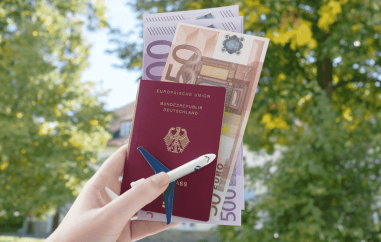
Renting Your First Apartment in Munich: A Guide for Foreigners

The 9 Most Accessible Languages for German Speakers

Convert to a German Driving License Through KVR

Can You Move Out Early by Providing a New Tenant?

Understanding "Ruhezeit": Navigating Noise Regulations in Germany
Cookie banner
We use cookies and other tracking technologies to improve your browsing experience on our site, show personalized content and targeted ads, analyze site traffic, and understand where our audiences come from. To learn more or opt-out, read our Cookie Policy . Please also read our Privacy Notice and Terms of Use , which became effective December 20, 2019.
By choosing I Accept , you consent to our use of cookies and other tracking technologies.

Follow The Short Fuse online:
- Follow The Short Fuse on Twitter
- Follow The Short Fuse on Facebook
Site search
- Arsenal Transfer Rumors and News
- UEFA Champions League
- Full Archive
- The Short Fuse Glossary
- Recommended Arsenal Sites
- DraftKings Nation
- Community Guidelines
Filed under:
Arsenal vs. Bayern Munich: rubber, meet road
The Gunners face a tough test in Germany.
Share this story
- Share this on Facebook
- Share this on Twitter
- Share this on Reddit
- Share All sharing options
Share All sharing options for: Arsenal vs. Bayern Munich: rubber, meet road
/cdn.vox-cdn.com/uploads/chorus_image/image/73285398/2148993288.0.jpg)
Arsenal travel to Bayern Munich for the second leg of the Champions League quarterfinal all square at 2-2 on aggregate. With the away goals rule scrapped, the task is simple: win and advance. It’s a stern test for this young Arsenal side who’ve consistently looked somewhat less than their Premier League best in the Champions League this season. The Gunners also have to bounce back from a disappointing result at the weekend. Today’s match will test the squad’s mentality and mental fortitude as much as anything else.
I’m fairly confident, however. The loss at the weekend aside, the Gunners have consistently risen to the occasion this season. They’ve played top teams really well too, going 2-2-0 in the Premier League against Manchester City and Liverpool . I’ve got a gut feeling this bunch has at least one more signature performance, the type of game that demonstrates they are serious contenders.
Arsenal need to not beat themselves. In the first leg, they more or less stymied this extremely talented, experienced Bayern Munich side. Both goals came off fairly simple defensive mistakes, with an assist to Leroy Sané’s incredible run on the second. Even Bayern’s chance off the post late in the match came from Thomas Partey heading the ball the wrong way. If the Gunners can eliminate those mistakes, which they’ve done for most of 2024, they should be alright.
The $64,000 question is how healthy are both sides. Bukayo Saka, Martin Ødegaard, and Gabriel Magalhaes should all start for the Gunners. Saka is clearly carrying something small that he’s been playing through for a while. Ødegaard “could not continue” because of a minor problem against Aston Villa . Gabriel has been managing a foot injury for more than half the season. Gabriel Martinelli, who you’d fancy against a Bayern defense and midfield that may push higher up the pitch than in the first leg, doesn’t seem to be at full fitness following his reported foot laceration. Gabriel Jesus is playing through pain and doesn’t have 90 minutes in his legs right now.
At this point in the season, everyone is carrying something, even if it’s just fatigue that crops up around the 60 minute mark. It’s a question of how much will those tired legs, dings, and knocks affect play.
Bayern will be without Serge Gnabry and Kingsley Coman, which are both significant losses. Gnabry caused all types of problems on the opposite wing from Leroy Sané. Coman is his usual replacement / sub. Sané, who is carrying an injury himself, will have to “grit his teeth for as long as possible” according to Thomas Tuchel. Manuel Neuer was rested at the weekend to continue to recover from an adductor injury. He played in the first leg but didn’t look fully himself. Aleksandar Pavlović is also working back from an injury is not fully match fit. Bouna Sarr and Sacha Boey are both long-term absentees.
Arsenal - Raya, Tomiyasu, Gabriel, Saliba, White, Rice, Jorginho, Ødegaard, Martinelli, Saka, Havertz
Tomiyasu returns at left-back ⚖️ Jorginho in the middle ⚡️ Martinelli on the wing Time to stand up and be counted, Gunners pic.twitter.com/F9dL4WZEtz — Arsenal (@Arsenal) April 17, 2024
Bayern - Neuer, Kimmich, Dier, De Ligt, Mazraoui, Laimer, Goretzka, Sane, Musiala, Guerreiro, Kane
@Arsenal ✨ #packmas #FCBARS pic.twitter.com/wFsUZ8NChT — FC Bayern Munich (@FCBayernEN) April 17, 2024
WHAT: Arsenal at Bayern Munich, Champions League Quarterfinal WHERE: The Allianz Arena, Munich WHEN: Wednesday, April 17th, 12:00 pm PT | 3:00 pm ET | 8:00 pm GMT HOW TO WATCH: Streaming on the Paramount+ App.
For all your international streaming needs, check LiveSoccerTV.com . Please do not discuss or share links to illegal streams here .
More From The Short Fuse
- Arsenal 0 - Bayern Munich 1: out of gas
- Arsenal at Bayern Munich CL preview: Knife’s Edge
- Arsenal 0 - Aston Villa 2: damaging
- Arsenal vs. Aston Villa: Unai Frenemy
- Arsenal vs Aston Villa preview: Refocus
- Gabriel Jesus’ ongoing knee injury
Loading comments...
- Newsletters
- Help Center
- Metro Atlanta
- Georgia News
- Legislature
- National & World News
- AJC Peachtree Road Race
- 2024 Election
- Trump Georgia case
Kimmich heads Bayern Munich past Arsenal and into Champions League semifinals

MUNICH (AP) — Joshua Kimmich's header powered Bayern Munich to a 1-0 win over Arsenal on Wednesday to reach the Champions League semifinals with a 3-2 victory on aggregate.
With the score at 2-2 from the first leg in London, Kimmich's header off Raphael Guerreiro's pinpoint cross put Bayern ahead in the 63rd minute as Bayern largely neutralized the English team's attack.
Bayern kept alive its hopes of finishing the season with a trophy three days after Bayer Leverkusen ended Bayern's 11-year reign as German champion. Striker Harry Kane — who spoke Tuesday of being motivated by his release from Arsenal as a youth player — takes a step closer to what would be the first trophy of his career.
Tuchel said it meant “really a lot” to beat Arsenal. “The semifinals are an important step, the last four, that was fun," he told broadcaster DAZN.
Bayern and Arsenal have been drawn together five times in the knockout stages of the Champions League since 2005 and the German team has eliminated Arsenal on each occasion.
Arsenal's Champions League exit follows a heavy blow to its Premier League title ambitions in a 2-0 loss to Aston Villa on Sunday. Defeat also rules Arsenal out of next year's Club World Cup in the United States.
Arsenal was left to rue the defensive errors that cost the team in the first leg, when manager Mikel Arteta said his team had “given them (Bayern) two goals.”
Tuchel — who is leaving at the end of the season — becomes a Champions League semifinalist as coach of three different teams, having led Paris Saint-Germain to the 2020 final before winning the competition with Chelsea a year later.
After a first half full of inconclusive midfield battles — Tuchel called it “a chess game” — the contest came to life after the break when Bayern hit the frame of the goal twice in a matter of seconds. Leon Goretzka sent a header against the bar and Guerreiro followed up with a shot that was deflected onto the post.
Arsenal struggled to make any headway against Bayern's defense and sometimes looked disjointed at the back, especially when defender Takehiro Tomiyasu risked an own goal with a misjudged pass that went behind for a corner.
Kimmich darted into the box unmarked to score the only goal of the game after Guerreiro's quick footwork on the touchline allowed him to cross past the onrushing Arsenal defender Ben White.
“I got a little lucky that no one seemed to really feel responsible for me,” Kimmich told DAZN.
Arsenal was awarded a free kick in a dangerous position with seconds of stoppage time left to play and opted to take it quickly. That approach yielded only a corner that was easily headed away as the final whistle blew and Bayern's celebrations began.
AP soccer: https://apnews.com/hub/soccer

Credit: Miguel Martinez/AJC

Credit: Jason Getz / [email protected]

Credit: Family photos

Between the US and a hard place, Germany's Scholz 're-engages' with China
- Medium Text

- German chancellor visits China after 'de-risking' push
- West and China clash over trade, Chinese overcapacity
- Germany to press China on business climate
- Two-thirds of German companies feel uneven playing field: survey
- Chinese support for Russia is hurting reputation, Germany says
BUILDING TRUST
The Reuters Daily Briefing newsletter provides all the news you need to start your day. Sign up here.
Writing by Matthias Williams; Editing by Muralikumar Anantharaman and Tomasz Janowski
Our Standards: The Thomson Reuters Trust Principles. New Tab , opens new tab

Thomson Reuters
Laurie Chen is a China Correspondent at Reuters' Beijing bureau, covering politics and general news. Before joining Reuters, she reported on China for six years at Agence France-Presse and the South China Morning Post in Hong Kong. She speaks fluent Mandarin.

World Chevron
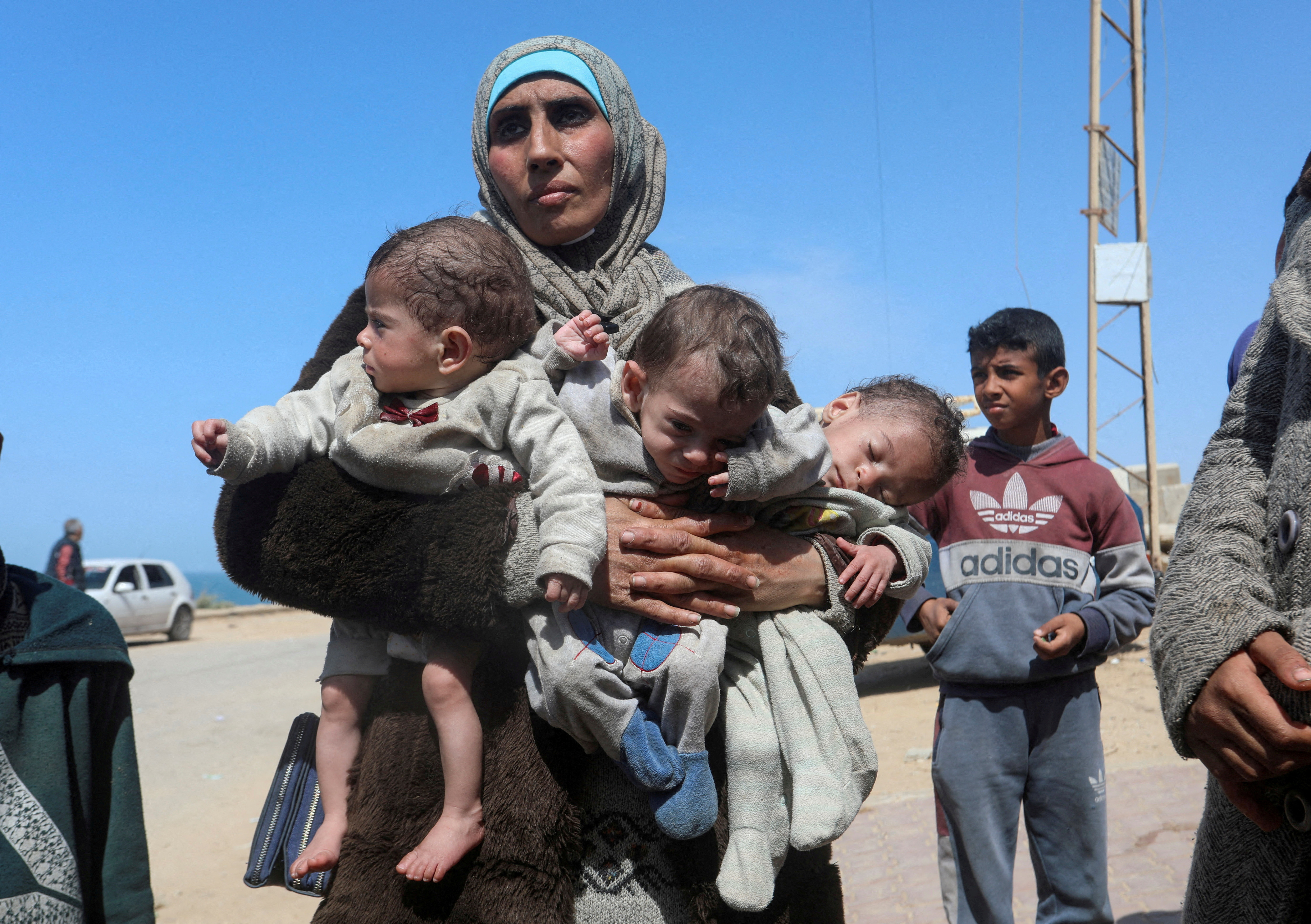
UNRWA chief warns man-made famine tightening grip across Gaza
A man-made famine is "tightening its grip" across the Gaza Strip, the head of the United Nations Palestinian refugee agency UNRWA warned on Wednesday as he accused Israel of blocking aid deliveries and seeking to end UNRWA's activities in the enclave.


IMAGES
COMMENTS
Further up-to-date information on the coronavirus in relation to your trip to Munich can also be found at muenchen.de. For acute questions regarding the coronavirus during your stay in Munich, please contact the Coronavirus Hotline of the City of Munich: 089 233 96333. Further information on entry for guests coming to Munich from abroad can be ...
COVID-19 travel restrictions were lifted in Germany. Travellers are not required to provide proof of vaccination, recovery from COVID-19 or a negative test result. Learn more: Federal Ministry of Health _____ You can find the latest information on air travel regulations for this country on the IATA website.. You can also find information about your passenger rights on our portal for citizens.
Info. All COVID‑19 entry restrictions to Germany are lifted for the time being. Entry to Germany is permitted for all travel purposes (including tourism and visits). It is no longer necessary to present proof of vaccination, proof of recovery or a negative test result for entry to Germany. Please see here for further information on travel ...
Entry regulations for your destination. Find the most important information about entering your destination country: regulations for Corona test certificates and local test centres, as well as local quarantine regulations. Simply enter your departure and destination airport here. To the entry requirements.
Travel: Testing and detection requirements, virus variant area. There is currently no obligation to test or provide evidence for all persons entering Germany. After a stay in a virus variant area ...
Germany entry details and exceptions. Travelers no longer need proof that they have been vaccinated, recovered or tested against covid-19 to enter Germany. However, if traveler is coming from a virus variant country or area, then entry regulations will still apply. Always check the German list as it is subject to change at any time.
Note . The Ordinance on Coronavirus Entry Regulations (CoronaEinreiseV) expires on 7 April 2023.After that date, entry into Germany will again be possible without coronavirus-related entry restrictions while observing the general entry requirements under the law of residence and relating to the border police (information from the Federal Ministry of the Interior "Lifting of COVID-19-related ...
Proof of vaccination. To enter Germany, all travellers must present proof of vaccination that meets the requirements listed under 1., 2. and 3. below in full. 1. It must be a digital EU COVID certificate or comparable proof of vaccination in digital or physical (paper) form in German, English, French, Italian or Spanish.
19. Dear travellers, Welcome to Germany! Travellers aged 12 or over who, at any time within the last ten days prior to entry, spent time in an area classified as an area of variants of concern at the time of entry must present their carrier with a negative test result (obligation to furnish proof). Proof of vaccination or recovery does not suffice.
06.04.2022 - Article. COVID-19: Travel restrictions due to the corona pandemic and quarantine regulations for entry to Germany. Persons who are fully vaccinated against the coronavirus SARS-CoV-2 with vaccines approved by the European Medicines Agency (EMA) (or equivalents of these vaccines used in third countries) can enter Germany.
Requirements to Enter Germany from the U.S. As of June 2022, Americans are allowed to enter Germany for any reason, including tourism. Neither testing nor proof of vaccination is required. However ...
Call us in Washington, D.C. at 1-888-407-4747 (toll-free in the United States and Canada) or 1-202-501-4444 (from all other countries) from 8:00 a.m. to 8:00 p.m., Eastern Standard Time, Monday through Friday (except U.S. federal holidays). See the State Department's travel website for the Worldwide Caution and Travel Advisories.
Read the country information page for additional information on travel to Germany. If you decide to travel to Germany: Be aware of your surroundings when traveling to tourist locations and crowded public venues. Follow the instructions of local authorities. Monitor local media for breaking events and adjust your plans based on new information.
In order to make the start of your trip as easy as possible, we put together a few tips that help you shorten the waiting time and avoid unpleasant surprises. Find out in advance about immigration regulations. Pack ahead. Use online check-in and automated services. Use the parking online booking platform in advance.
Passport or National ID. Munich is located in Germany, in the European Union, making it part of the Schengen Area. This means that EU nationals and citizens of 62 other countries only need their passport (with at least four months validity from the planned departure date) or national identity card to enter as tourists for a period of up to 90 days.
If you live in Germany, read our Living in Germany guide for passport stamping information. Visa requirements You can travel to countries in the Schengen area for up to 90 days in any 180-day ...
Travelers bringing in tobacco or alcohol products must be 17 years or older, and those bringing coffee or tea must be 15 years or older. From E.U. countries the duty-free limits are higher. Duty-free allowances are authorized only when the items are carried in the traveler's personal baggage. What you Can Take Home from Germany --.
Travel during daylight hours only, especially in rural areas. If you choose to drive a vehicle in Germany, learn the local traffic laws and have the proper paperwork. Get any driving permits and insurance you may need. Get an International Driving Permit (IDP). Carry the IDP and a US-issued driver's license at all times.
26 March 2024. Latest update: Information on travelling to Germany for Euro 2024 ('Euro 2024' page). The Foreign, Commonwealth & Development Office ( FCDO) provides advice about risks of ...
Germany is a part of the Schengen area, meaning you can enter Germany without a visa in some cases. You usually don't need a visa if you travel to Germany for less than 3 months as a tourist. Contact the nearest embassy or consulate of Germany if you're travelling to Germany for any other purpose.
Travel Advice and Advisories from the Government of Canada for Germany. ... Entry requirements vary depending on the type of passport you use for travel. ... 80331 Munich, Germany Telephone +49 89 21 99 57 0 Fax +49 89 2199 5757 Email [email protected] Internet https: ...
If you're travelling to Germany, our up-to-date travel advice gives you practical tips on emergency contacts, security, climate and other essential information. ... Munich - Closed from December 15 2023. Consulate General of Ireland, Munich will open in Summer 2024, for all requests please contact Embassy of Ireland, Germany.
COVID-19 Travel Restrictions. In view of the COVID-19 situation, travellers visiting Germany should be prepared for updates to entry requirements. ... Honorary Consulate-General of the Republic of Singapore in Munich, Germany. Maximilianstraße 32, 80539 Munich, Federal Republic of Germany. Tel: +49 (89) 58801 0380. Email: info ...
The state has imposed some restrictions. ... Explore the 50 best destinations in America and more with the MEN'S JOURNAL Travel Awards Explore the 50 best destinations in America ... Munich, Germany.
By Erika Solomon. Reporting from Berlin. April 15, 2024. A government-appointed commission in Germany recommended on Monday that lawmakers legalize abortion during the first trimester of pregnancy ...
When applying for a German visa, there are specific requirements that your health insurance policy must meet to be accepted: Coverage Validity: Your health insurance coverage must be valid for the entire duration of your stay in Germany and meet the minimum coverage requirements set by German authorities. Comprehensive Coverage: Your health ...
Arsenal travel to Bayern Munich for the second leg of the Champions League quarterfinal all square at 2-2 on aggregate. With the away goals rule scrapped, the task is simple: win and advance. It's a stern test for this young Arsenal side who've consistently looked somewhat less than their Premier League best in the Champions League this season.
Updated 42 minutes ago. MUNICH (AP) — Joshua Kimmich's header powered Bayern Munich to a 1-0 win over Arsenal on Wednesday to reach the Champions League semifinals with a 3-2 victory on ...
Last year Germany launched a strategy to "de-risk" from China, but on Saturday Chancellor Olaf Scholz starts a high-stakes visit there hoping to shore up ties at a delicate point with the U.S. and ...
6. Berlin: Seven out of the top 10 cities on Euromonitor International's 2023 list are in Europe. Manfred Gottschalk/Alamy Stock Photo. 7. Rome: The Spanish Steps are one of the Italian capital's ...